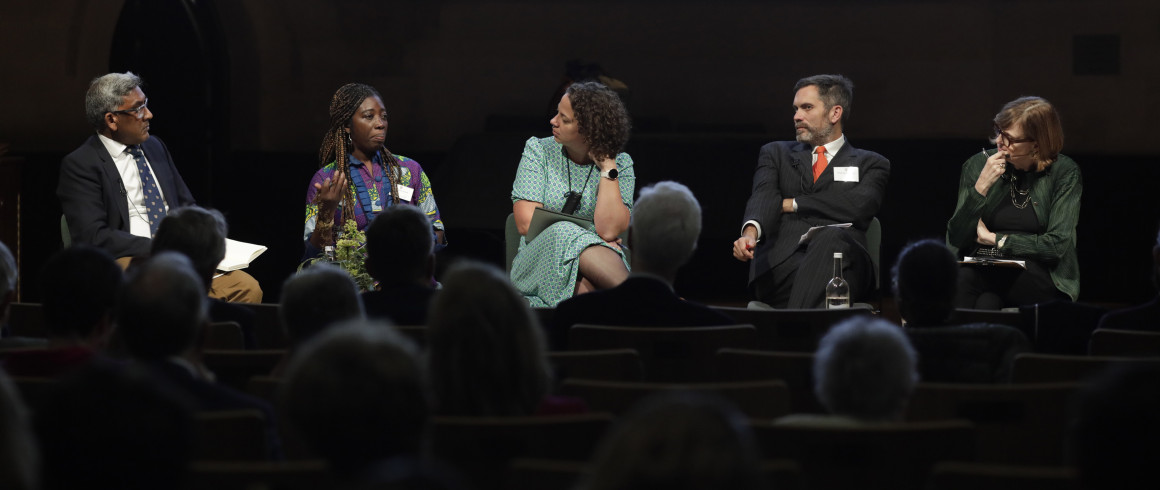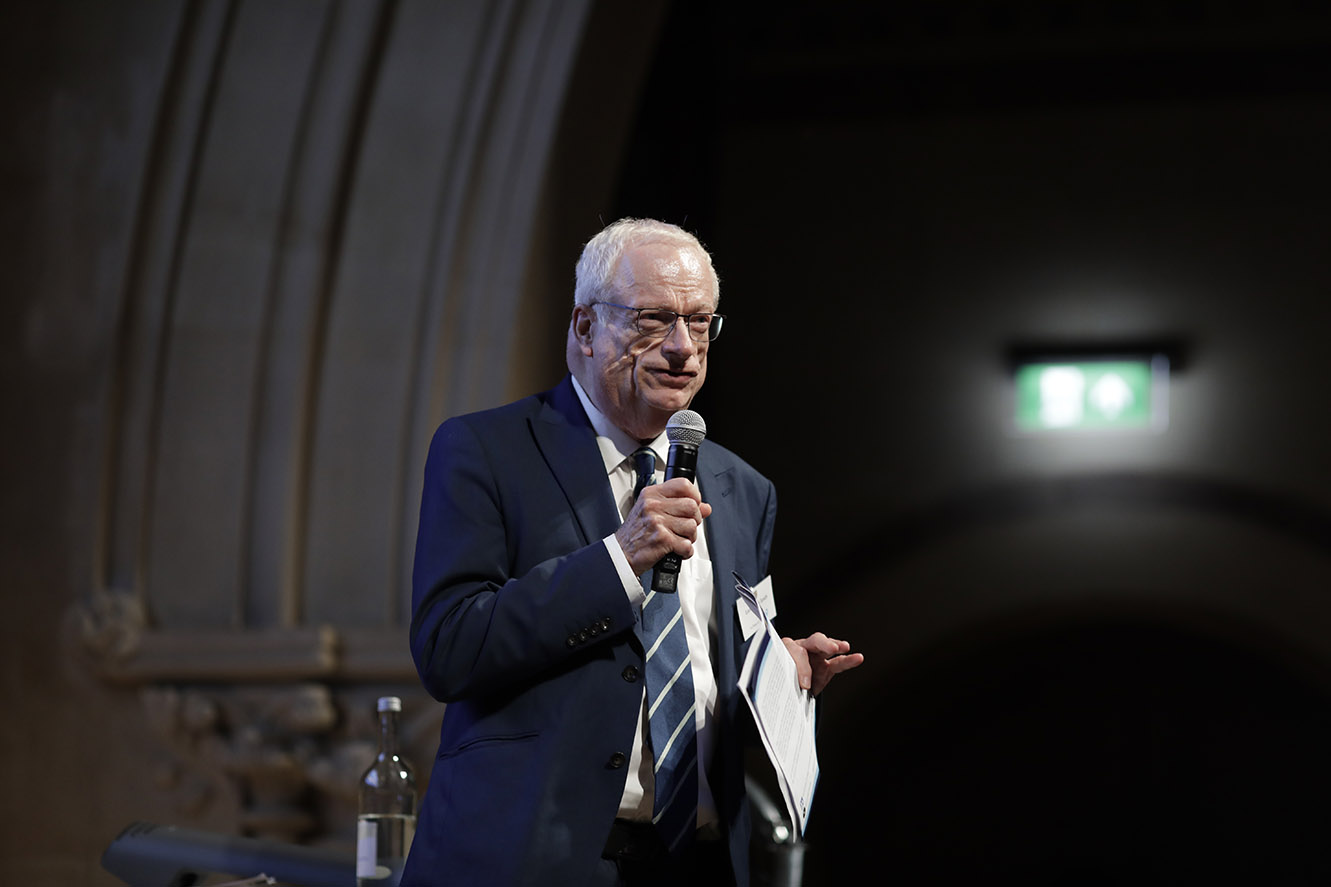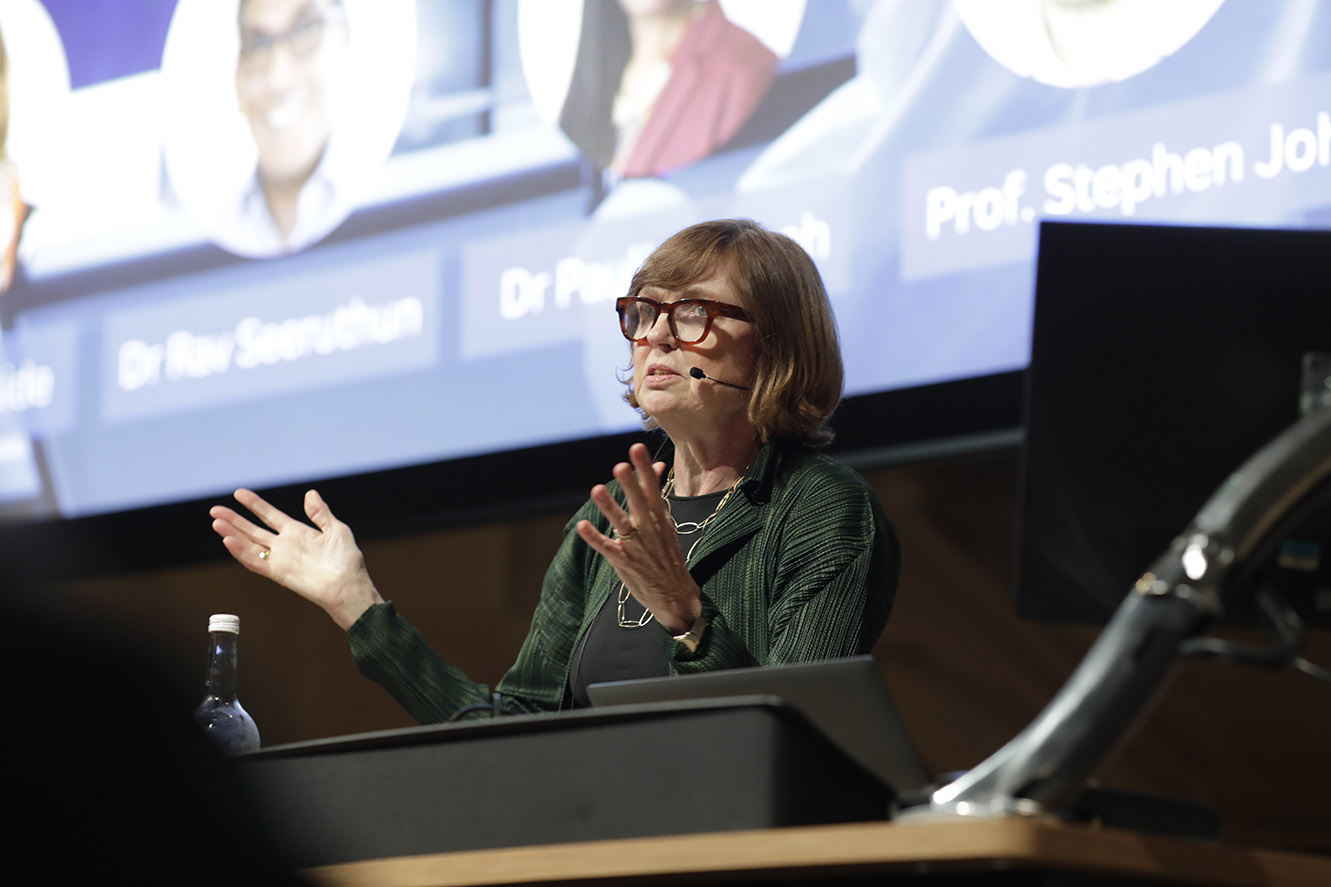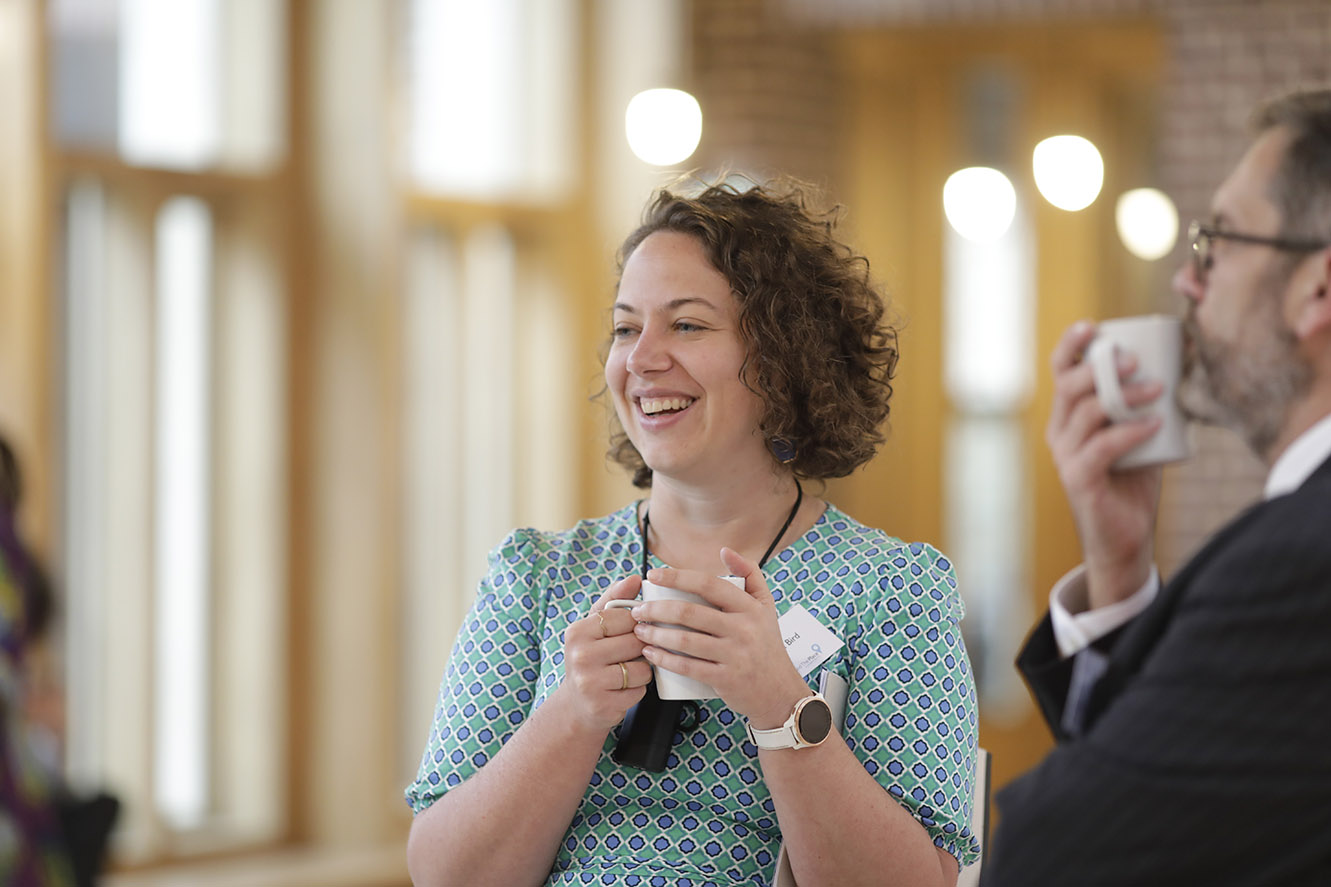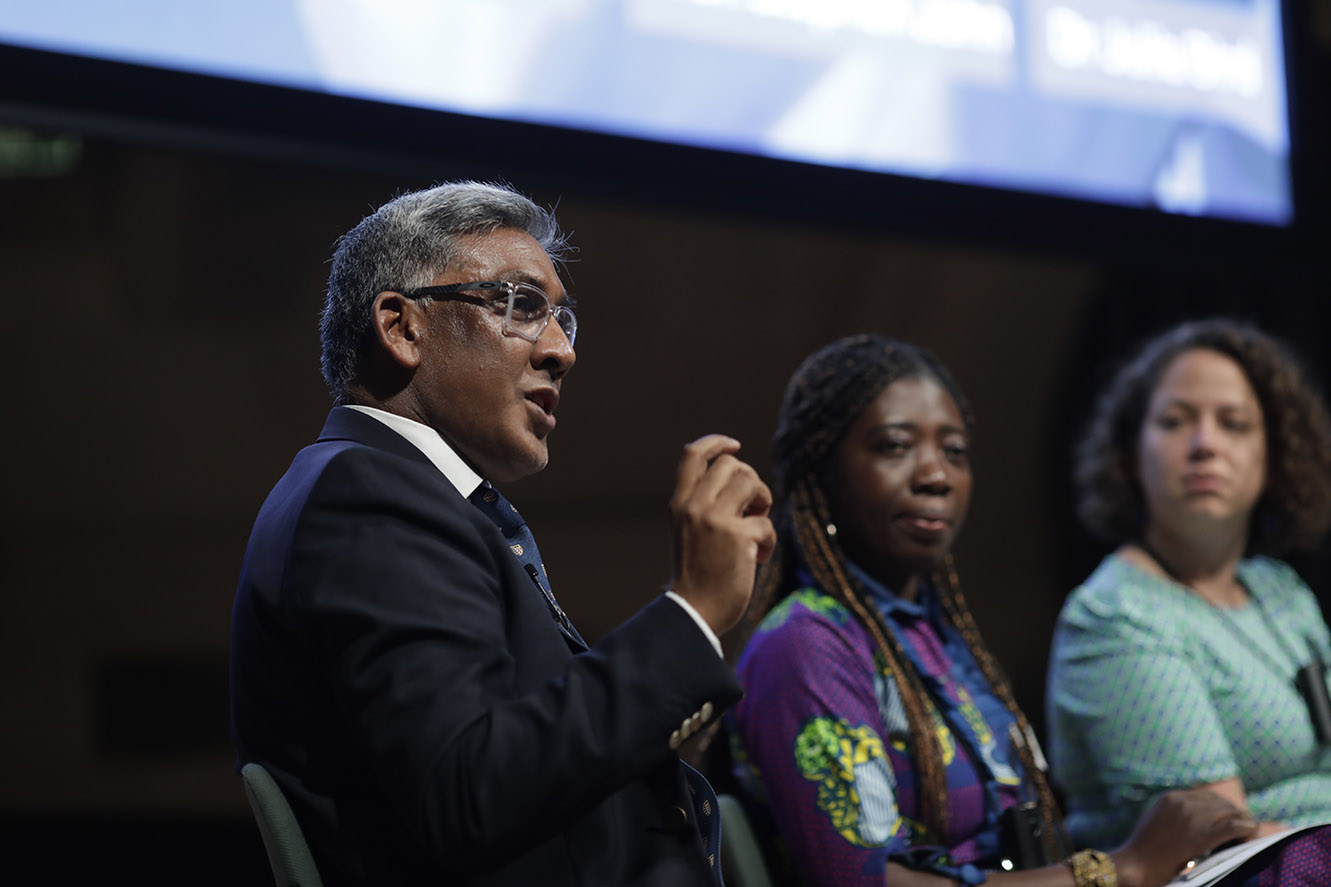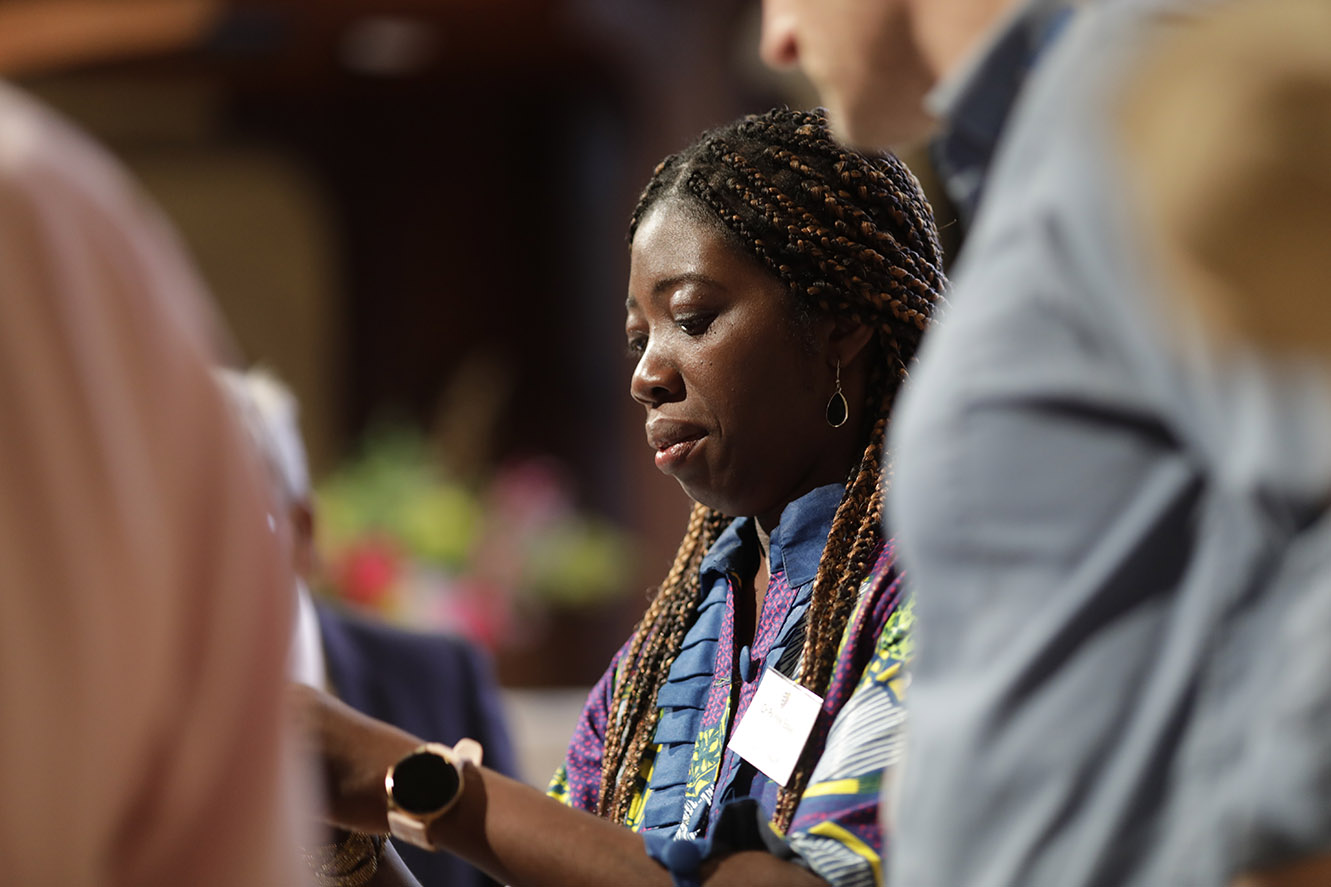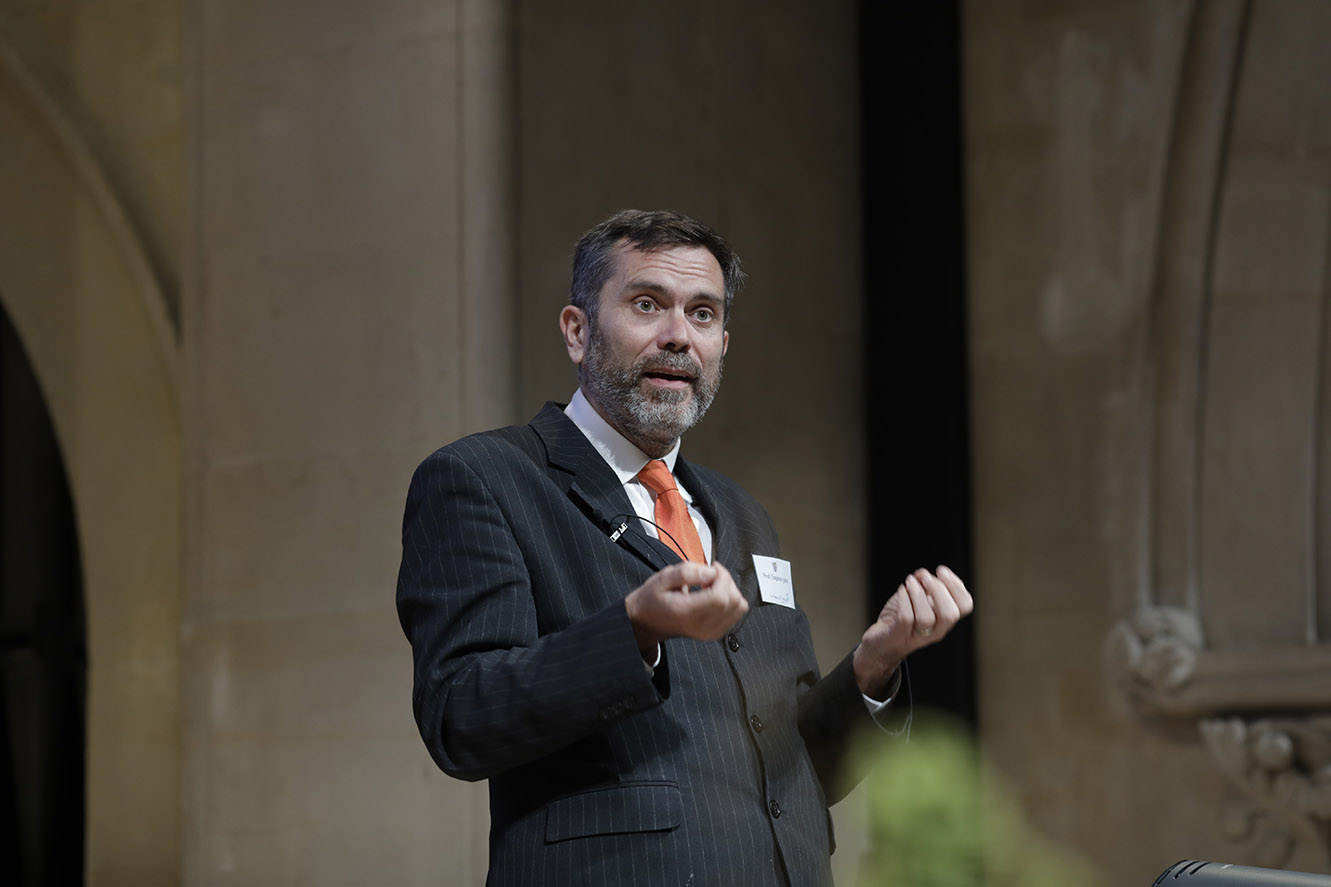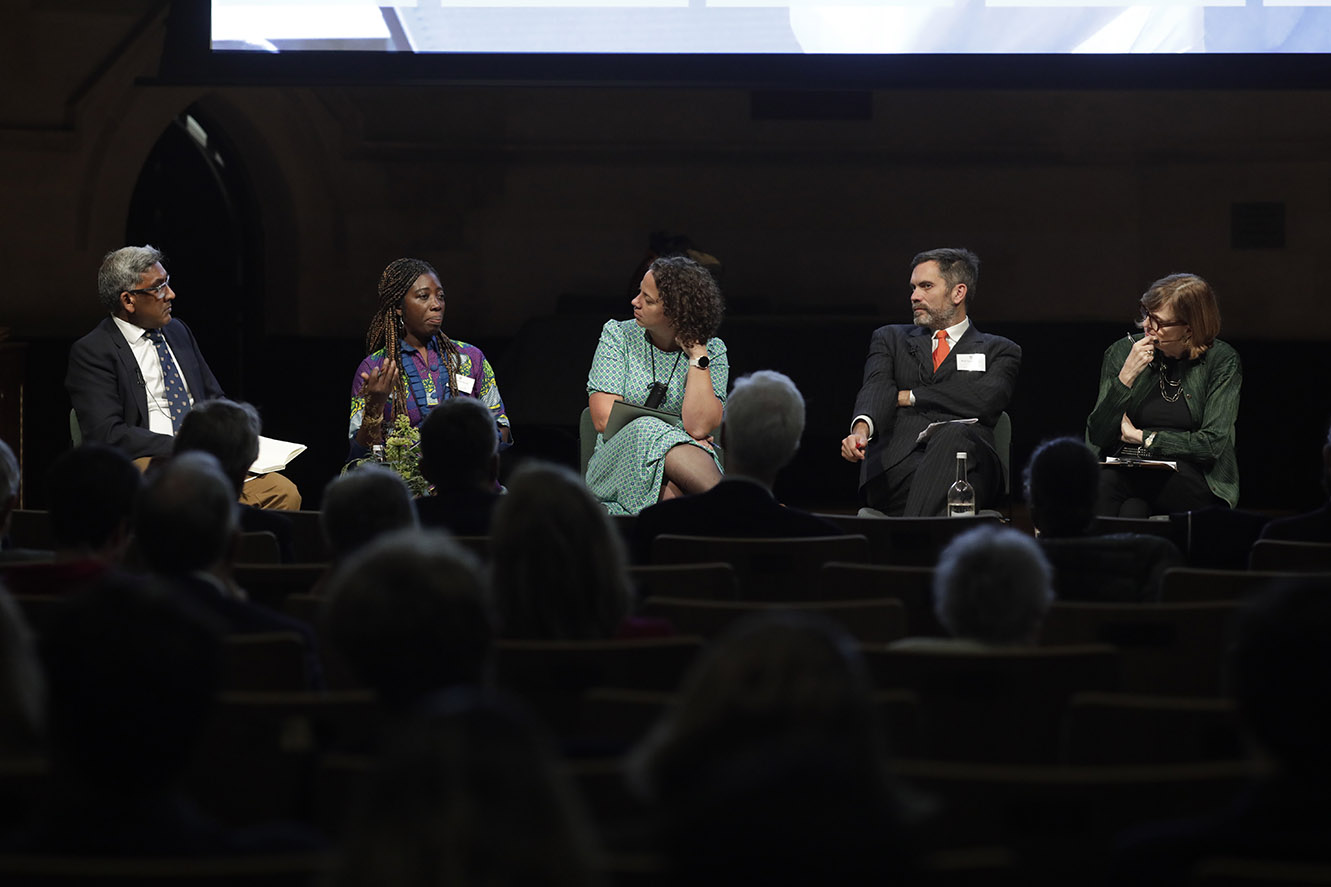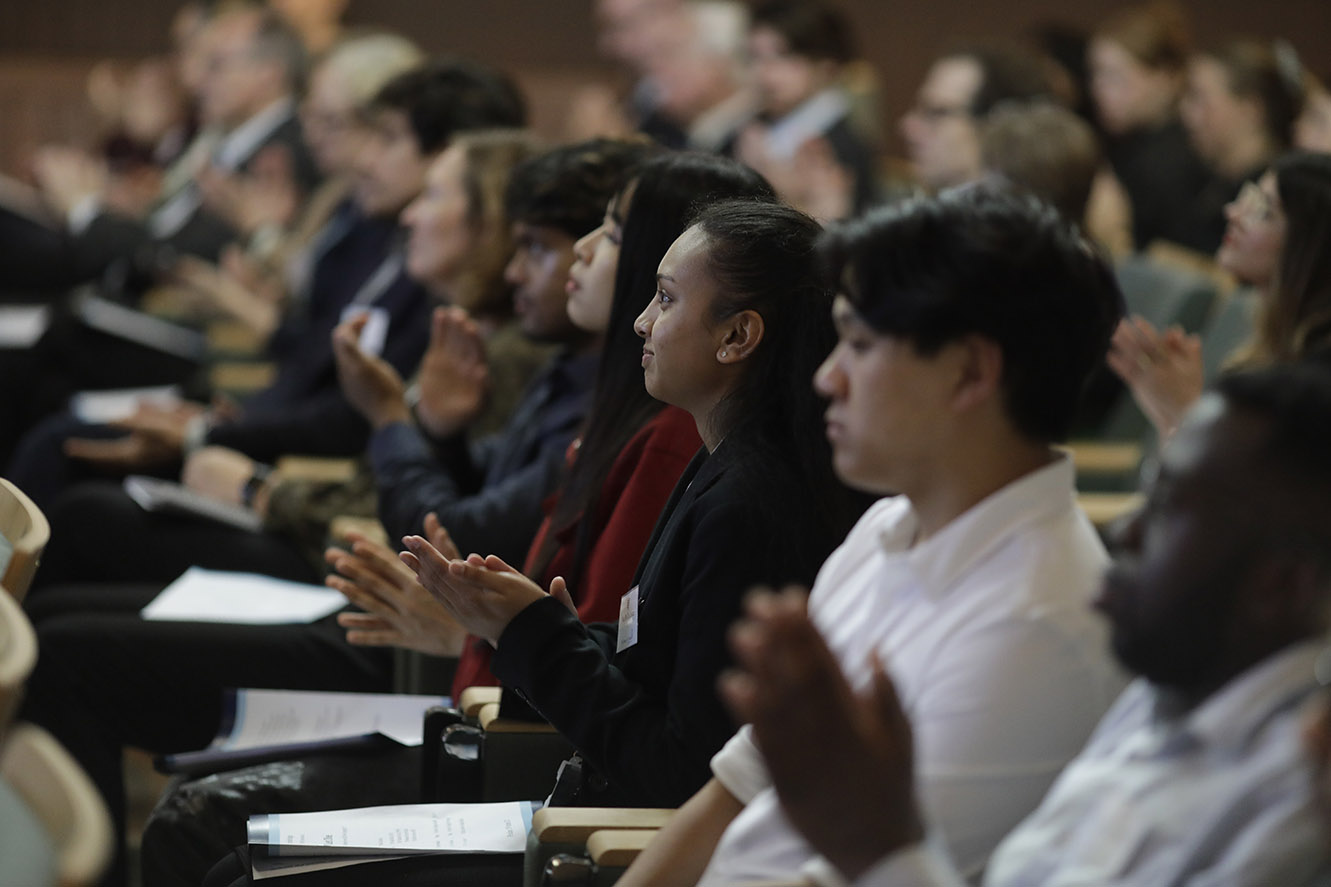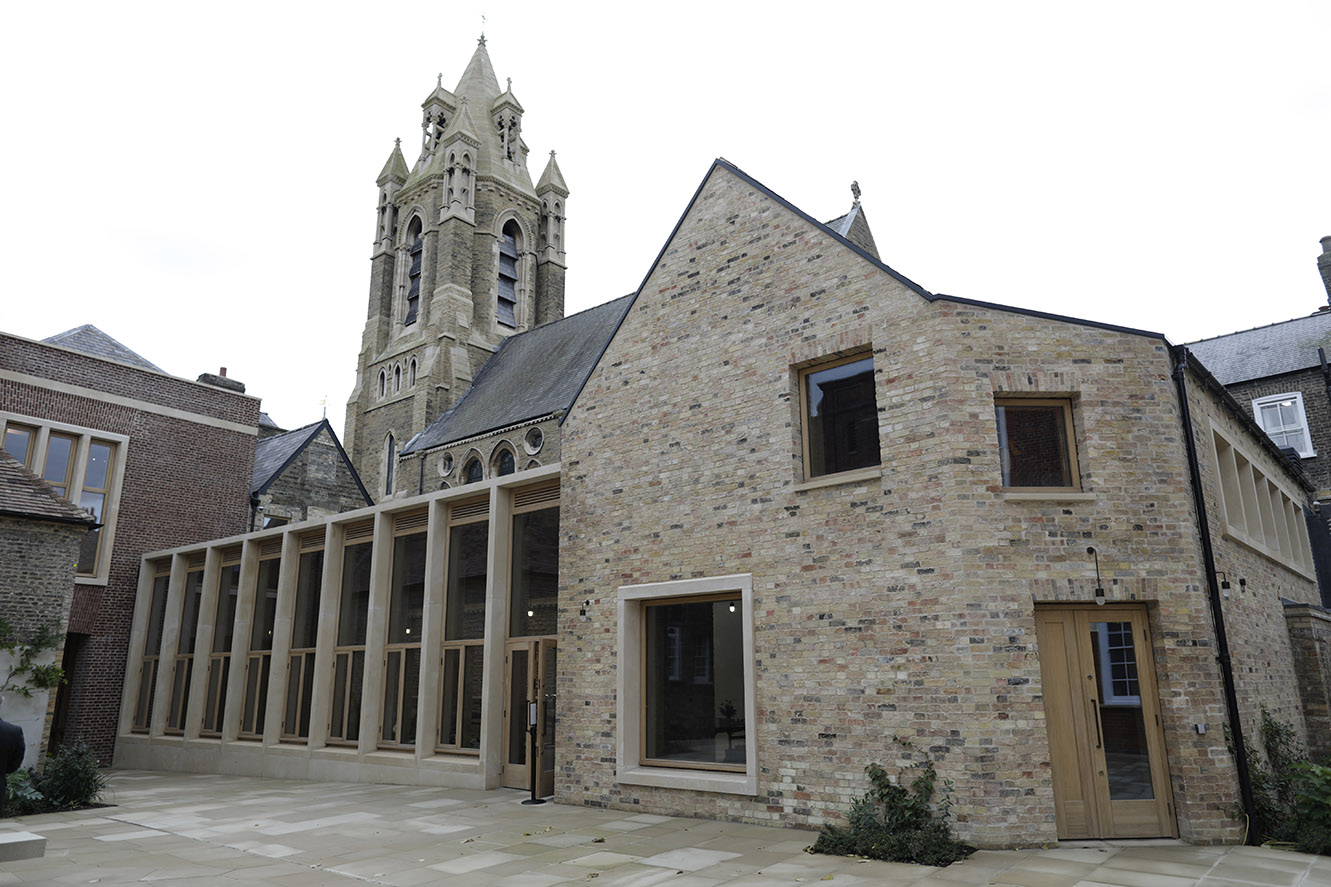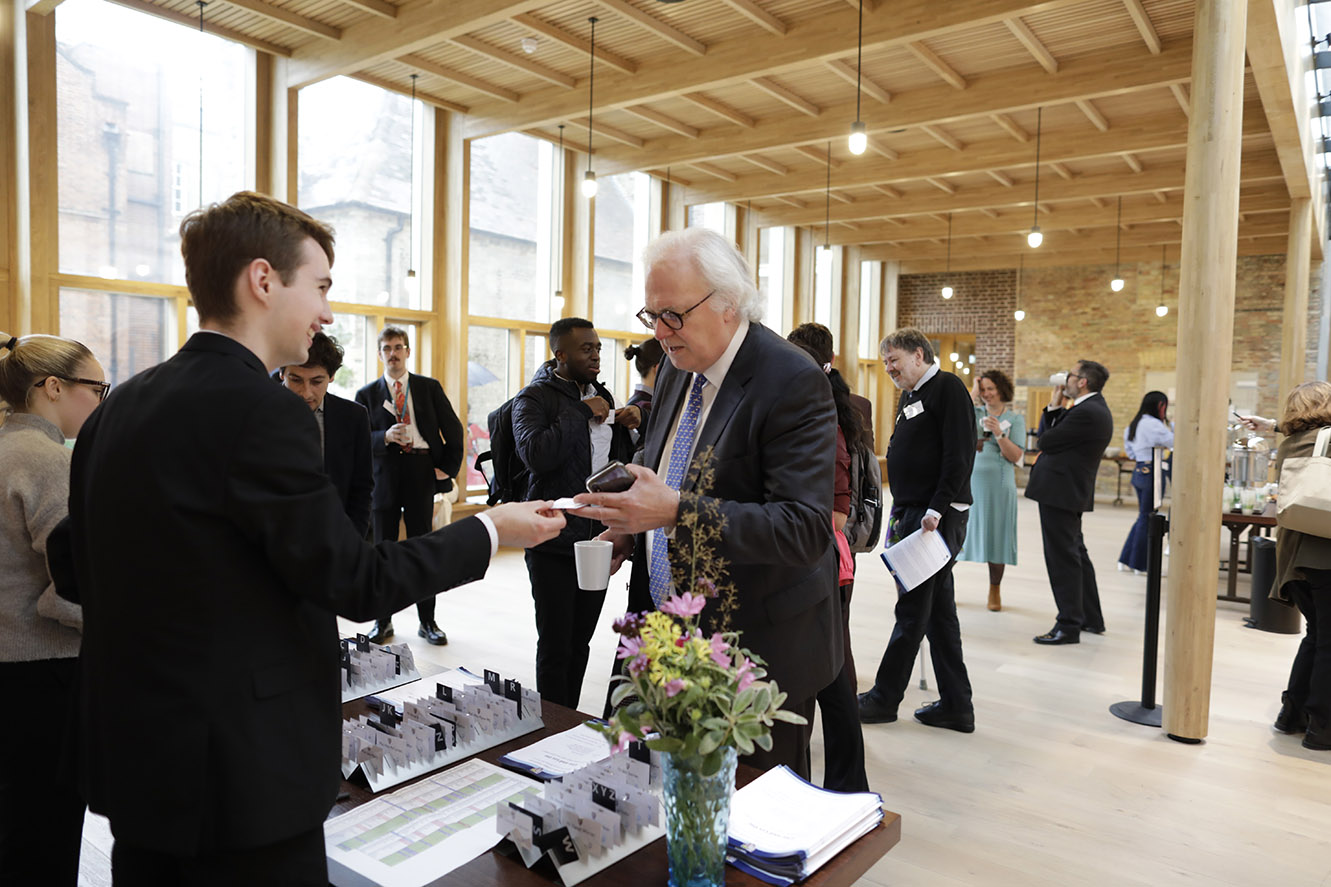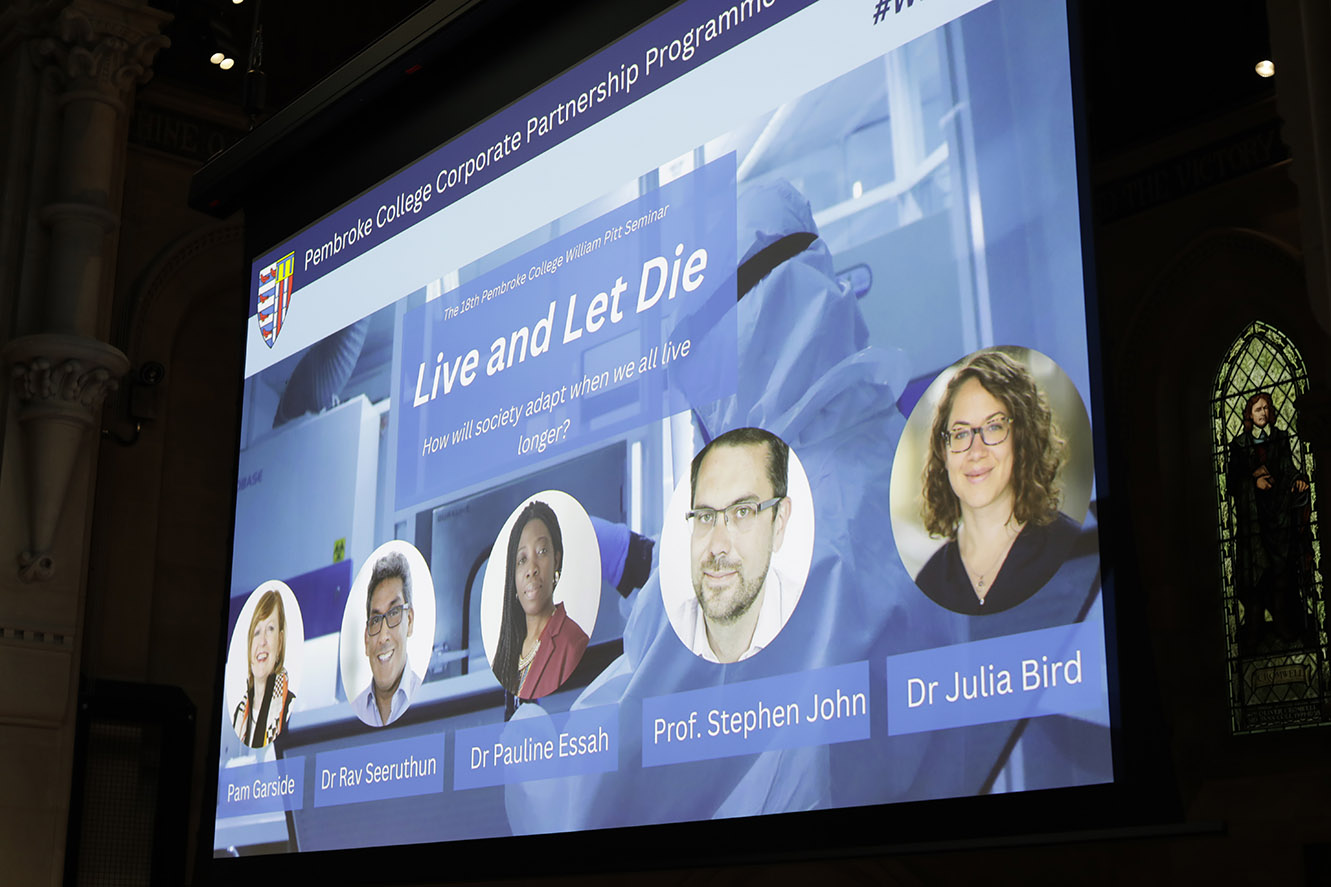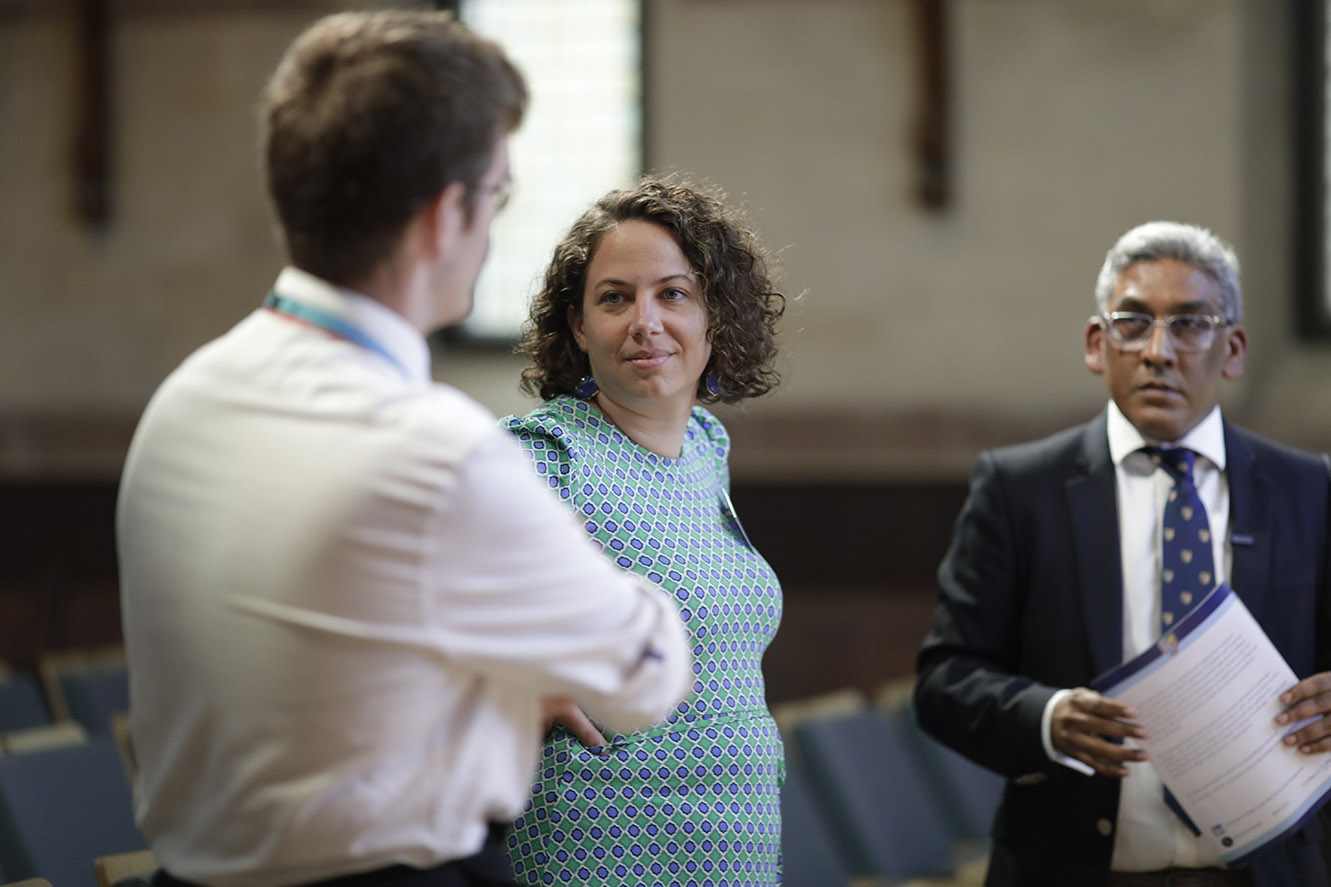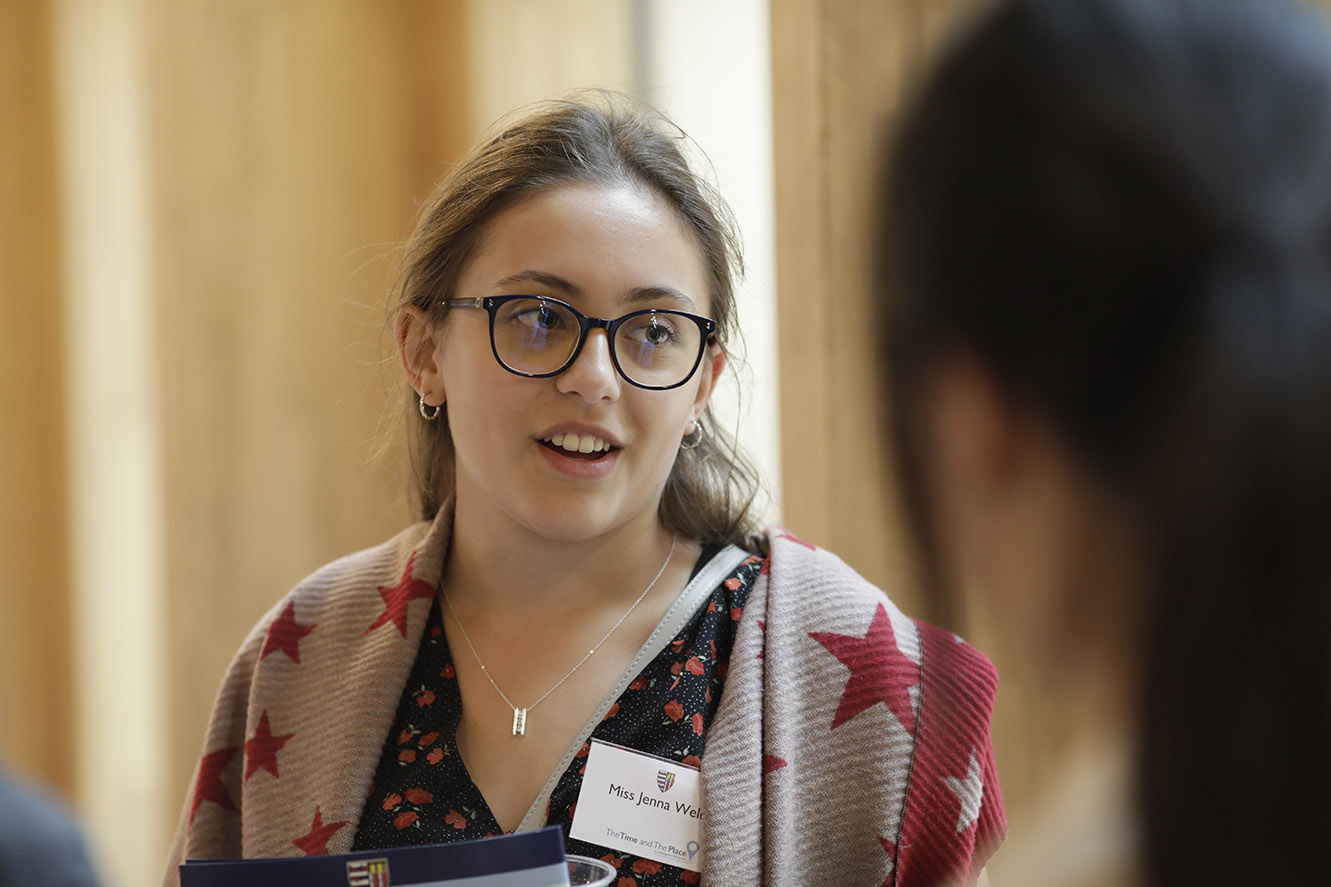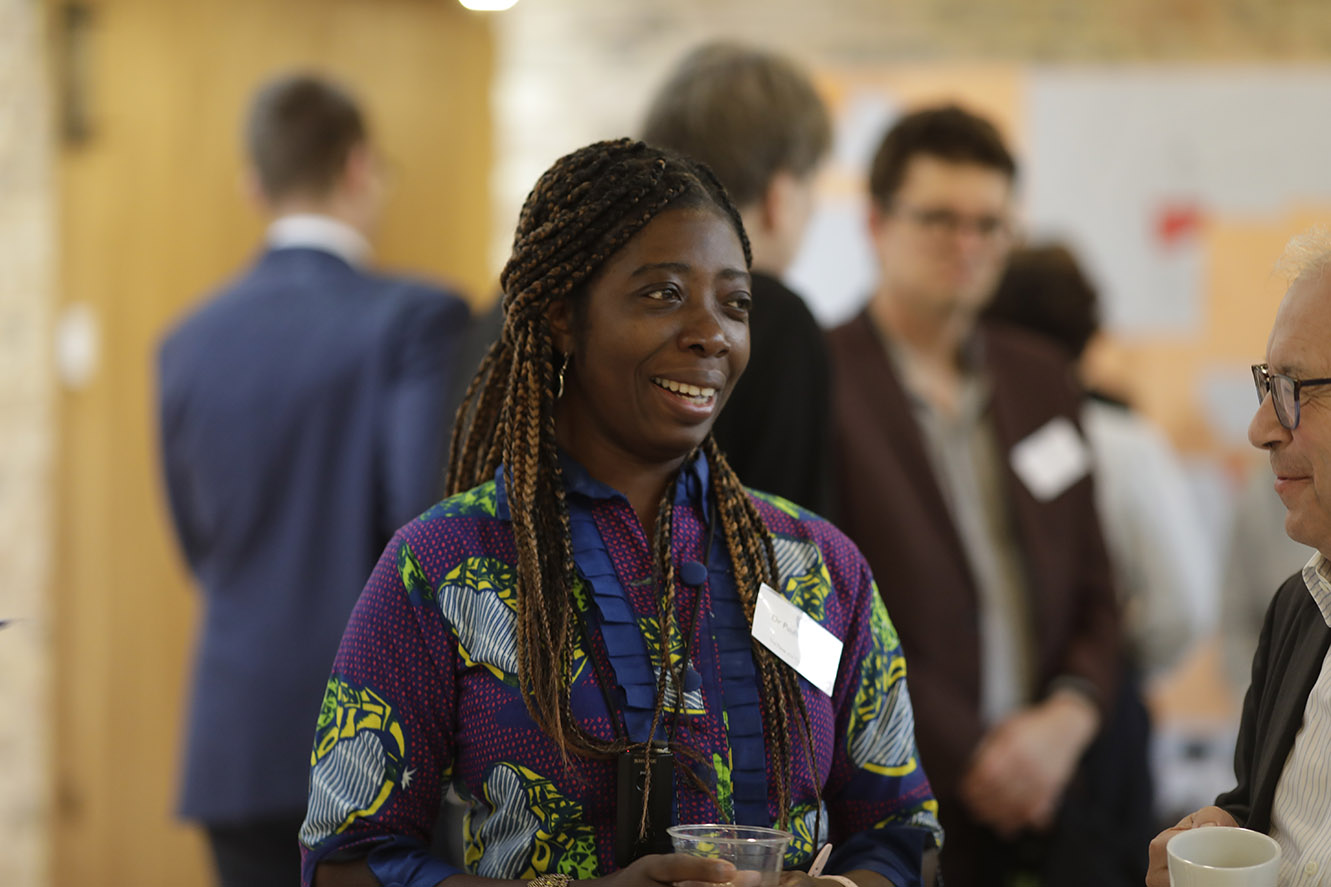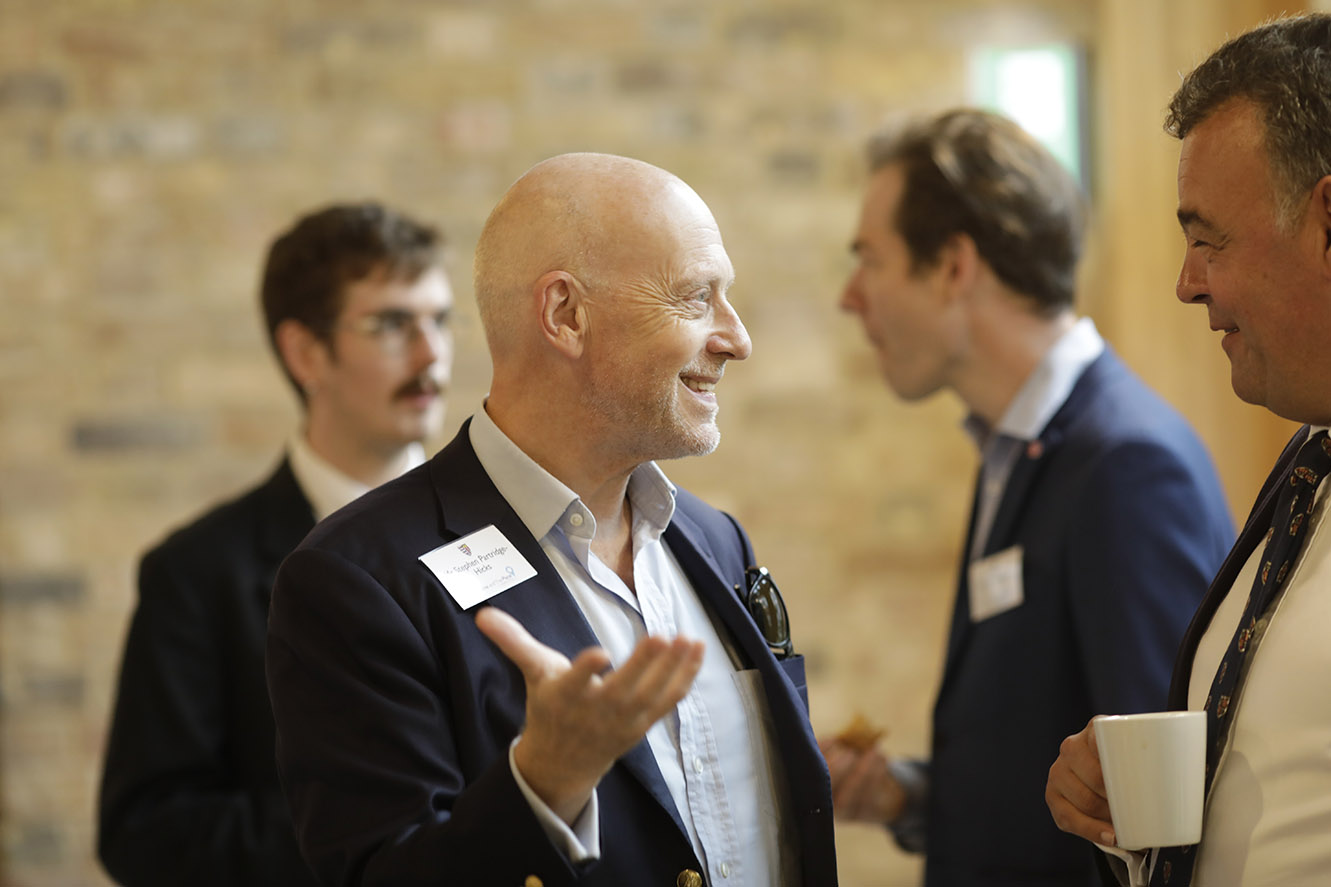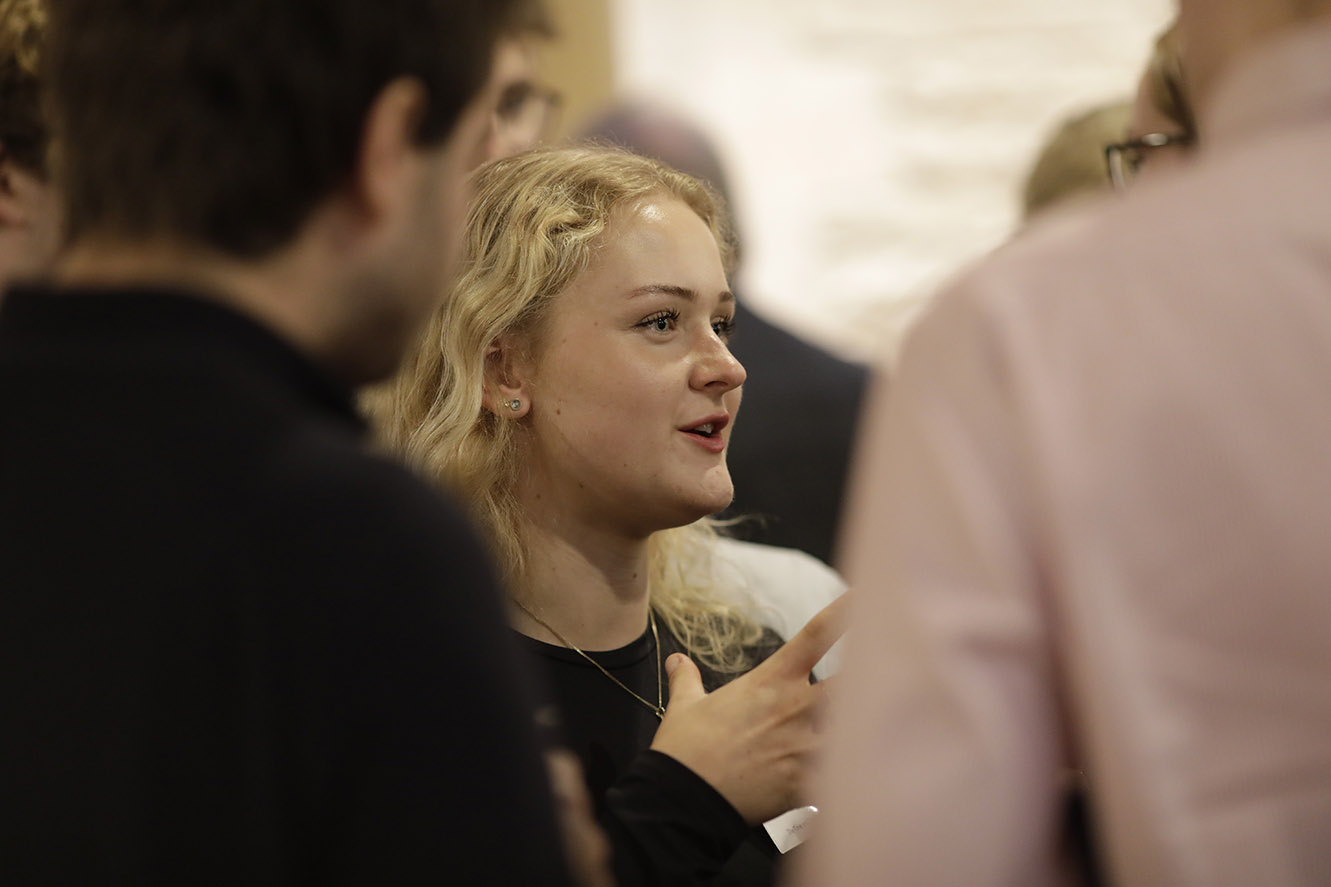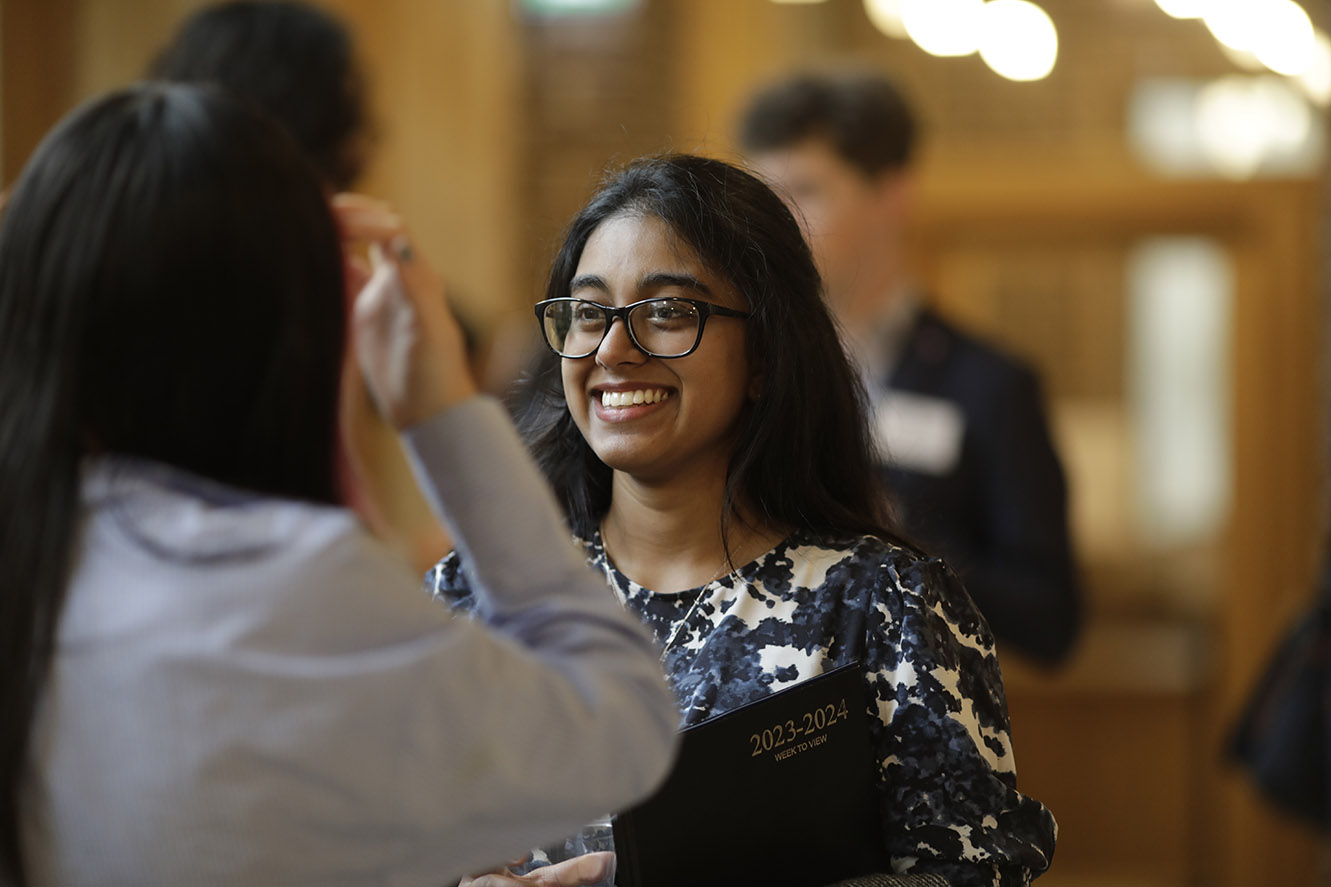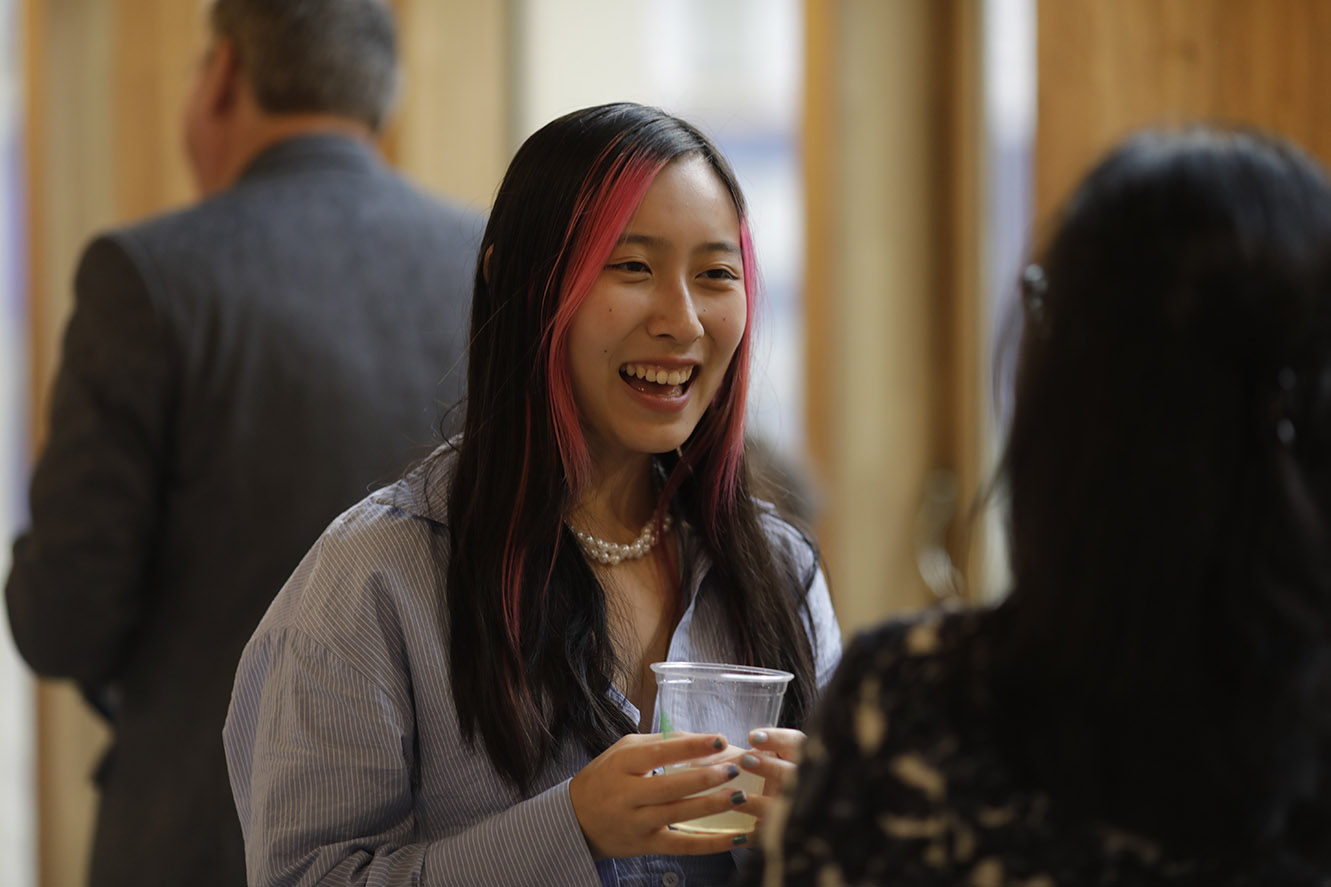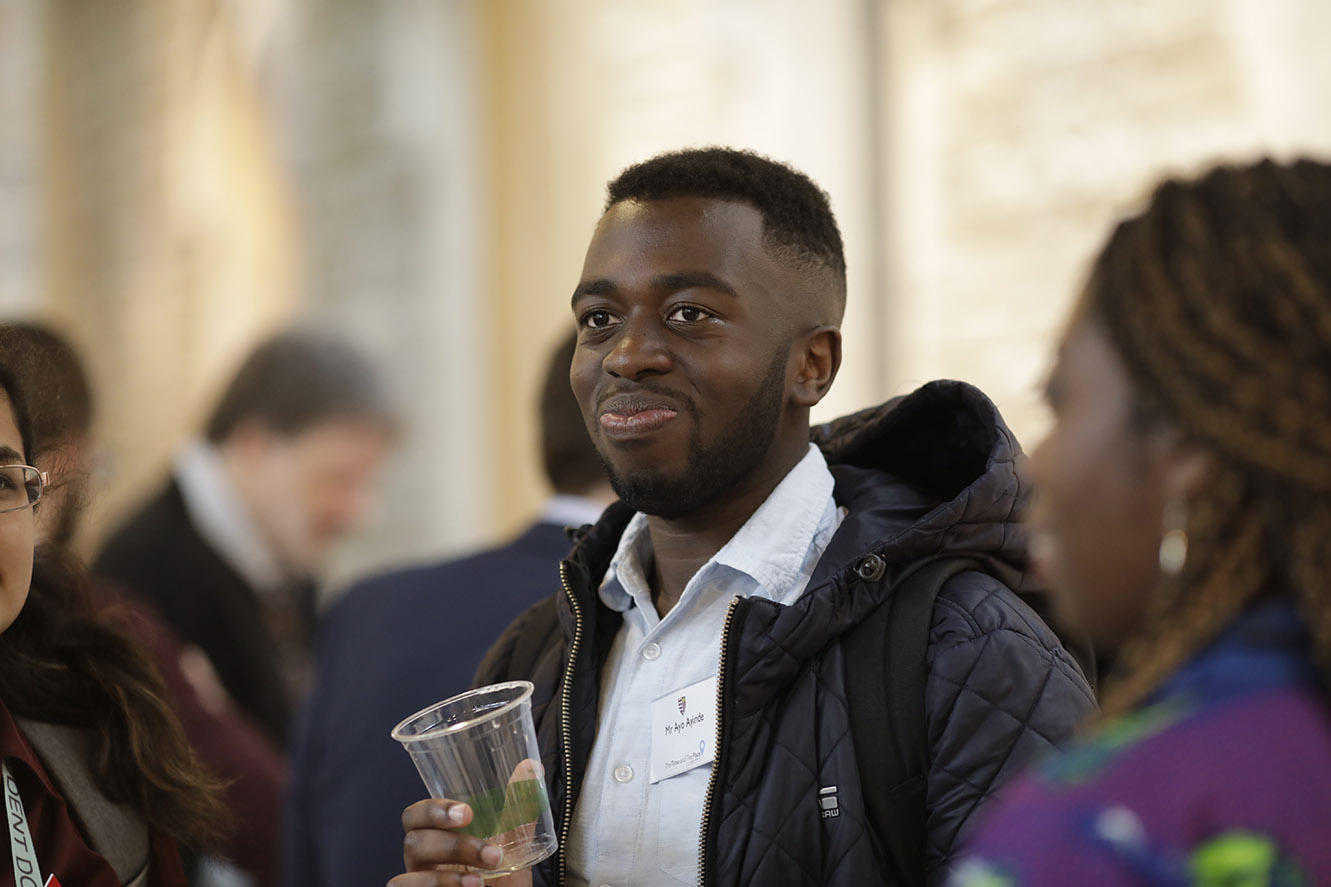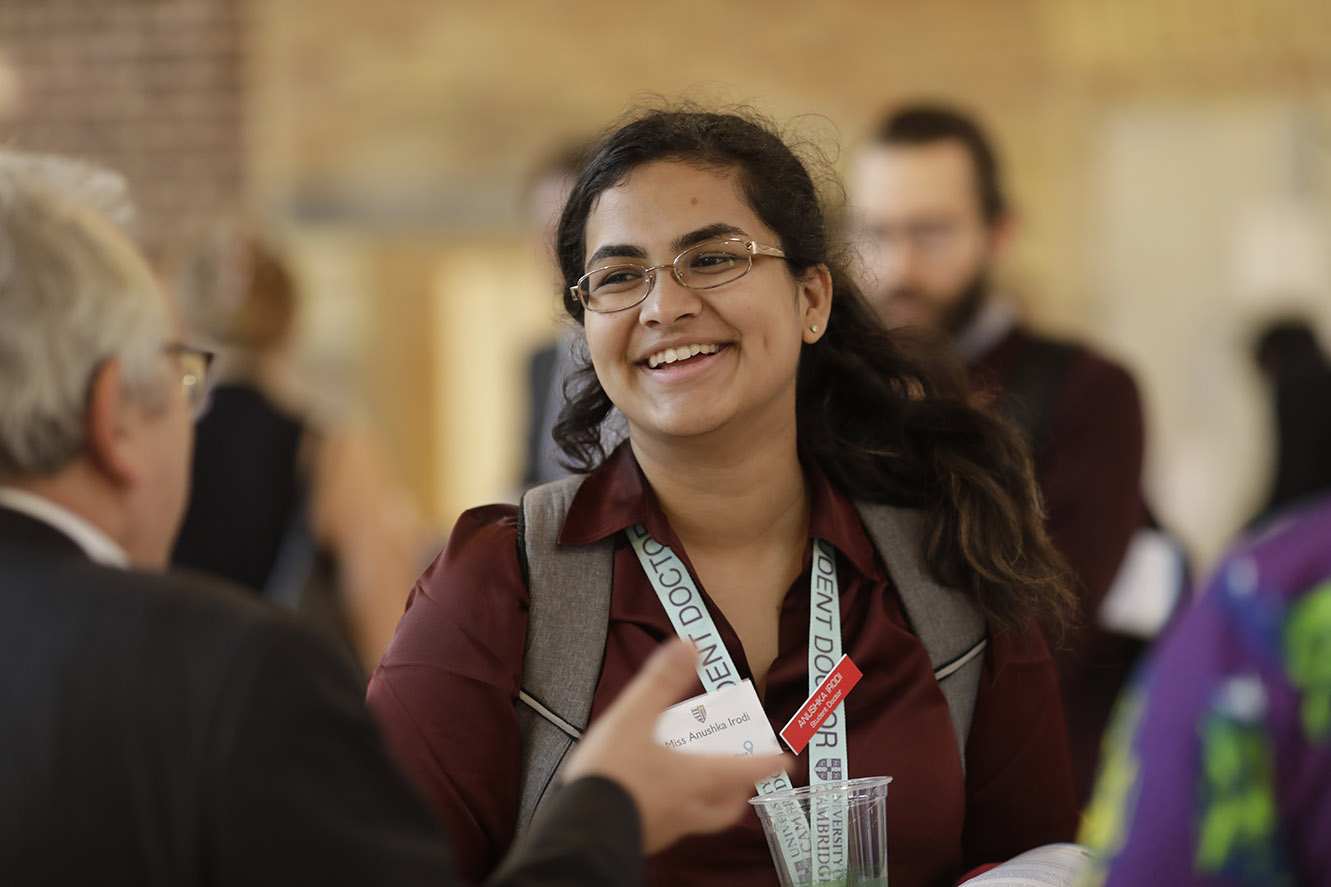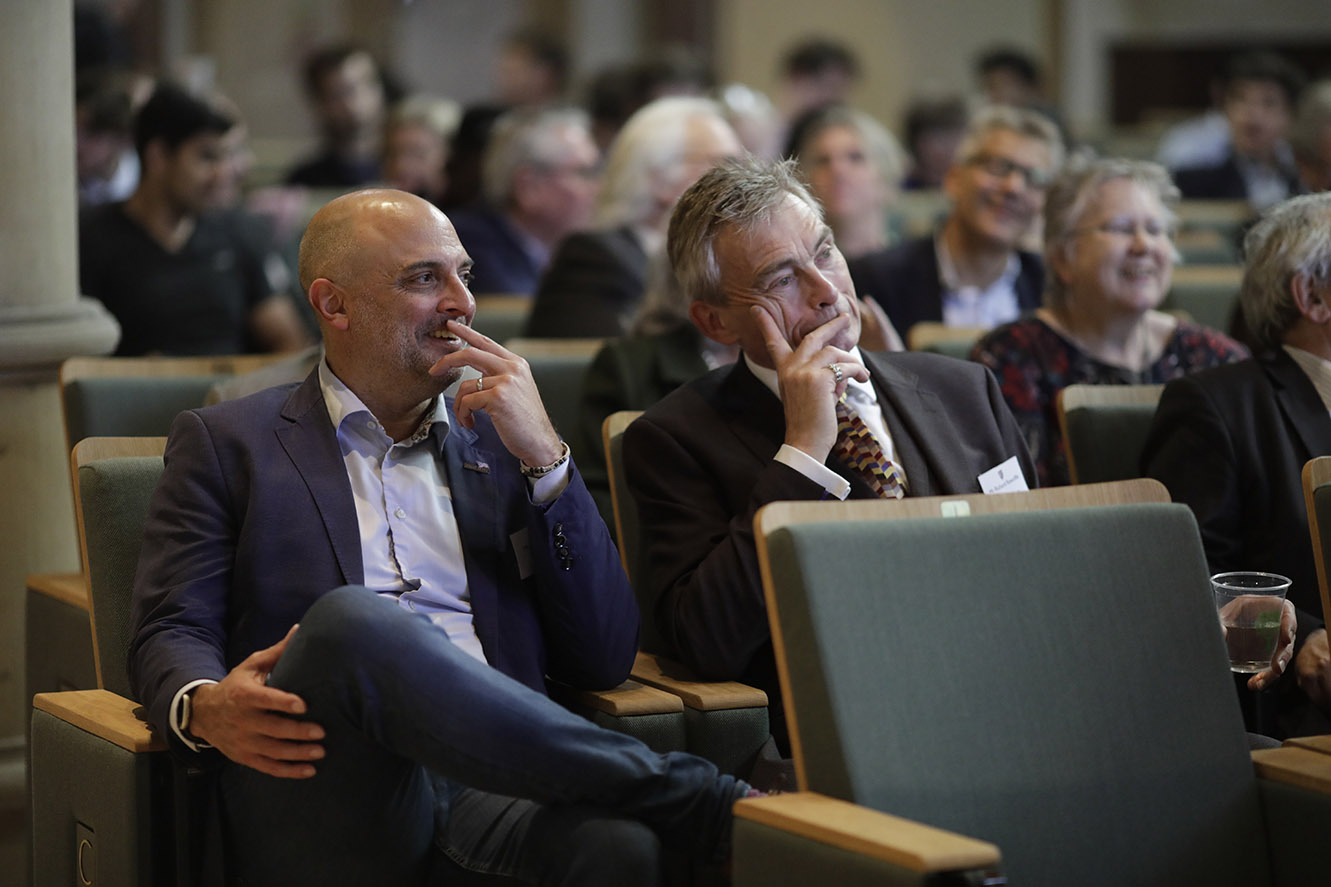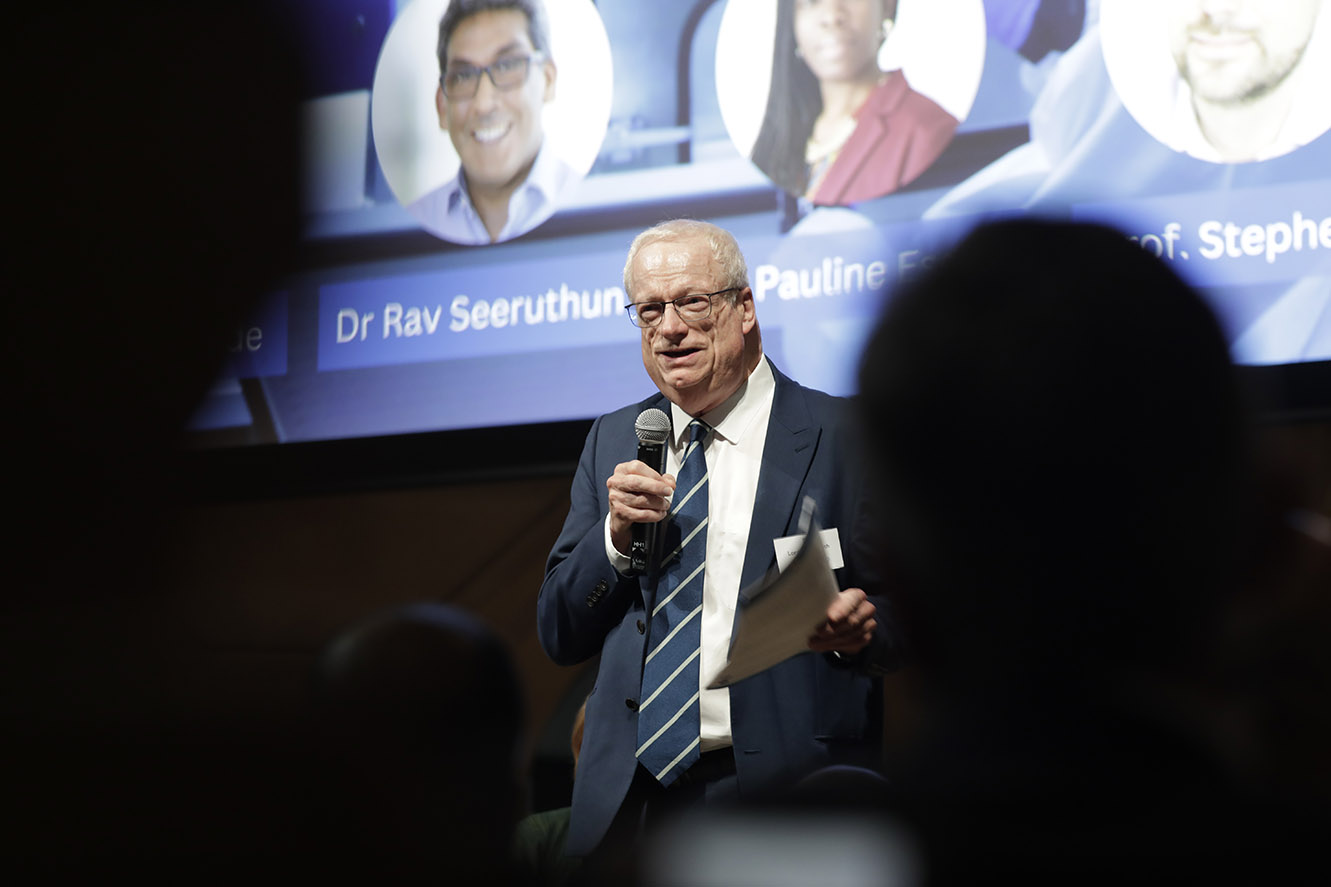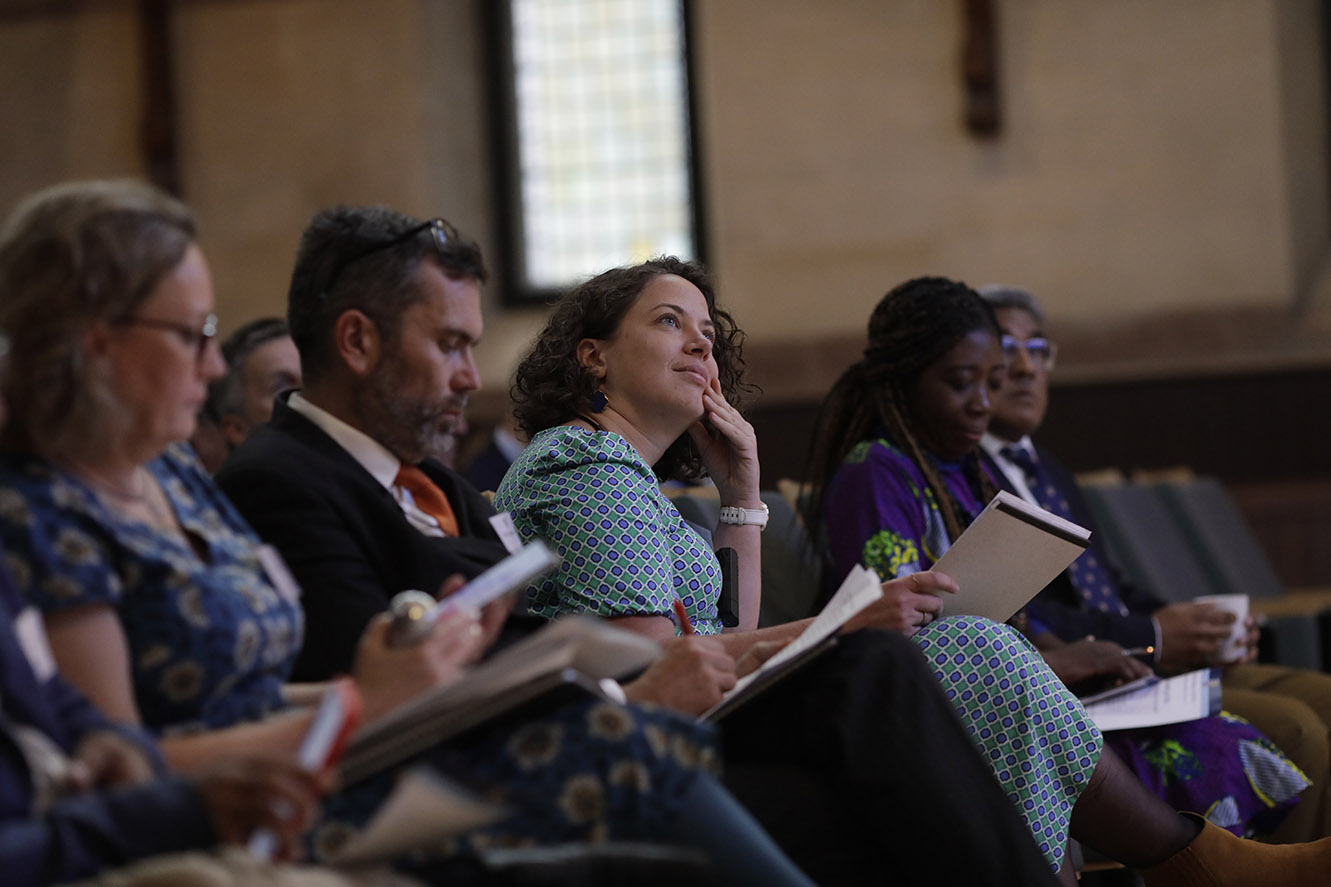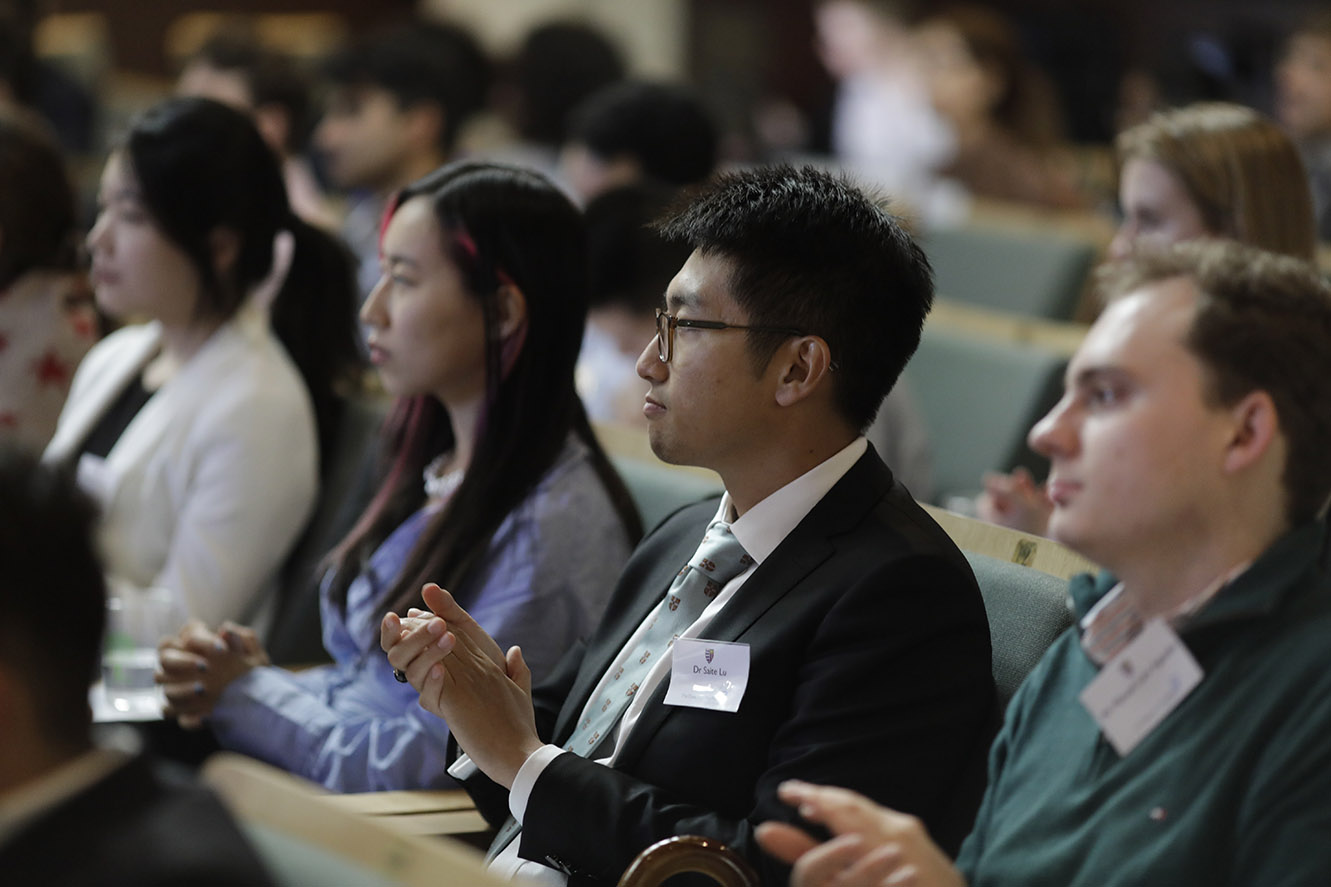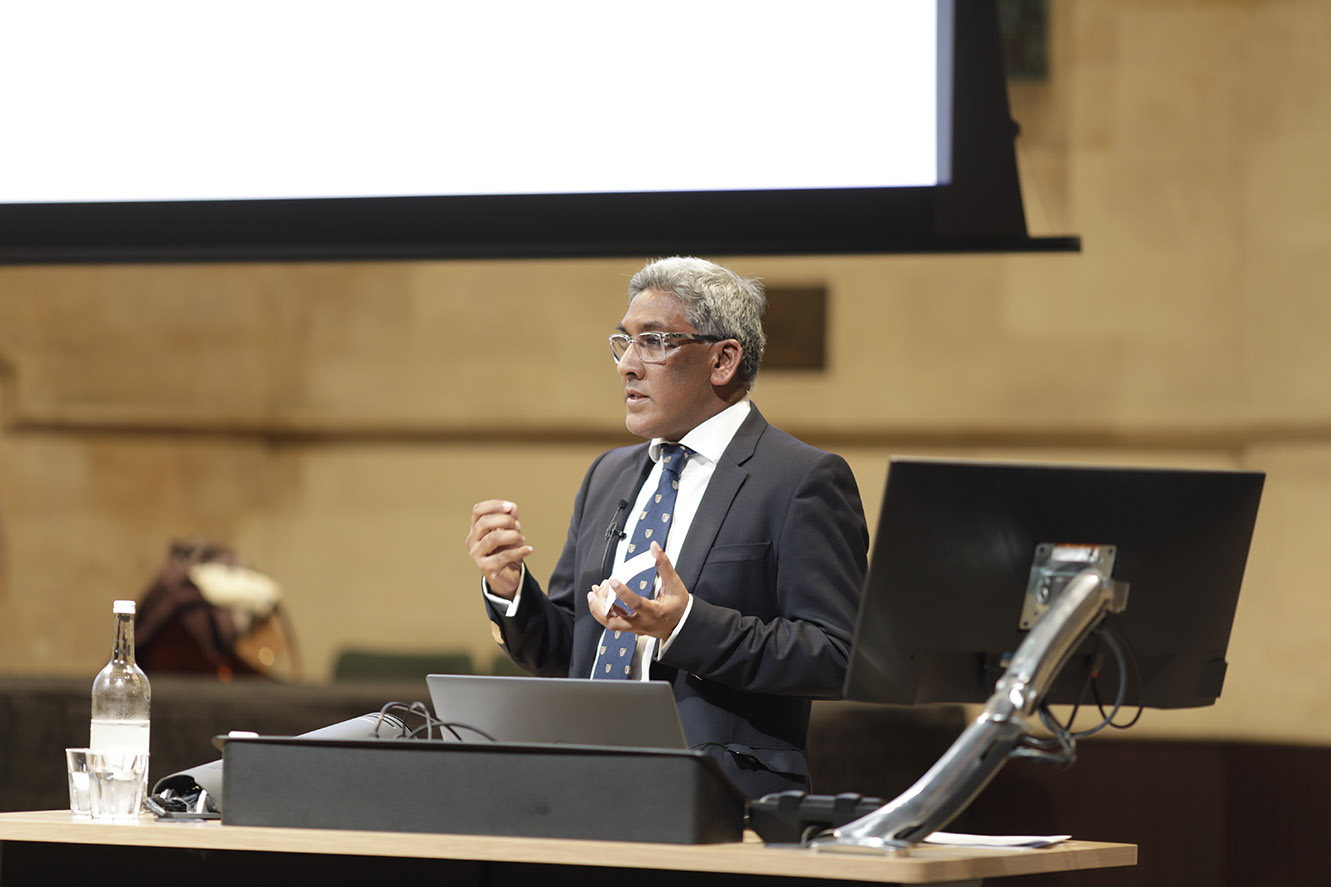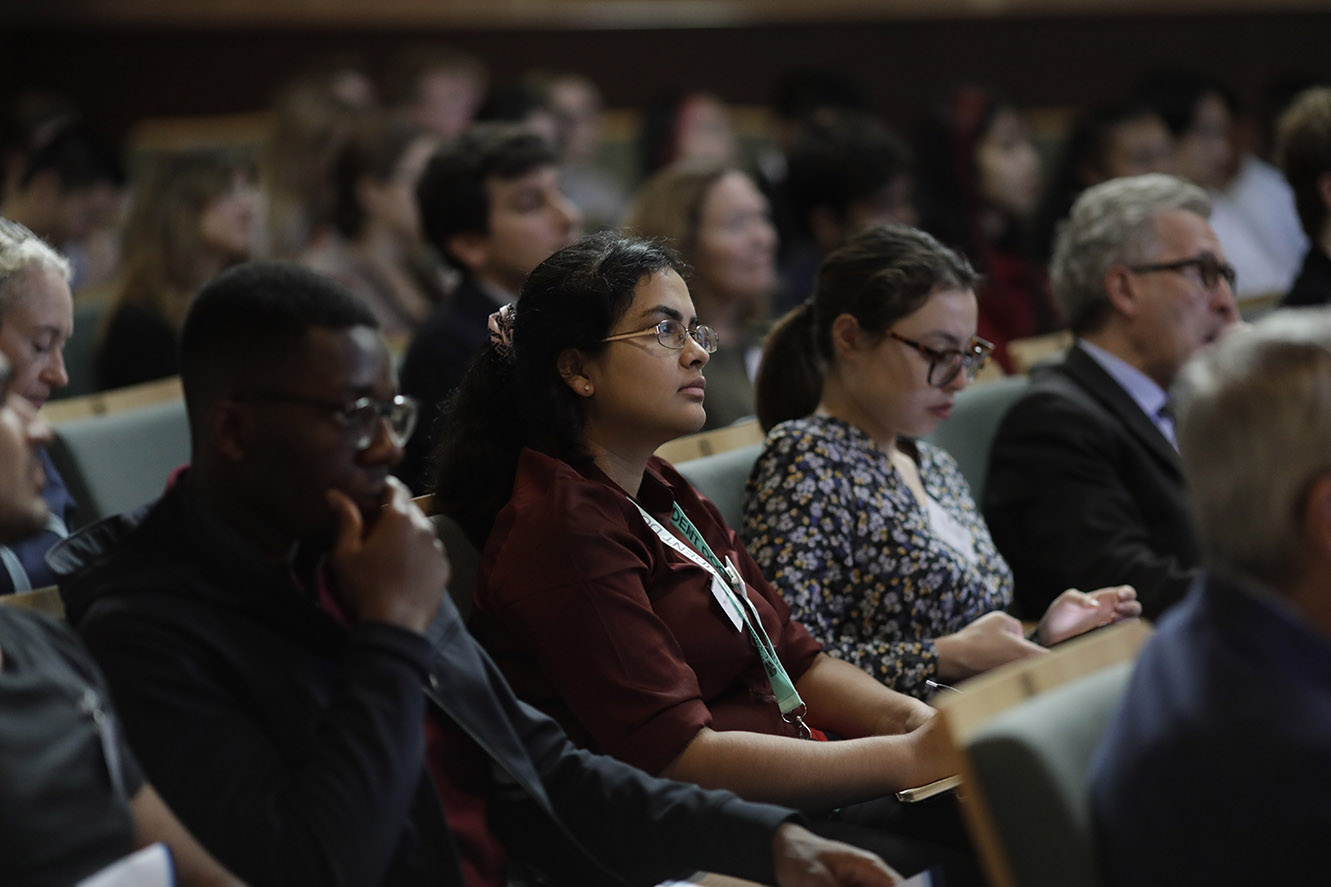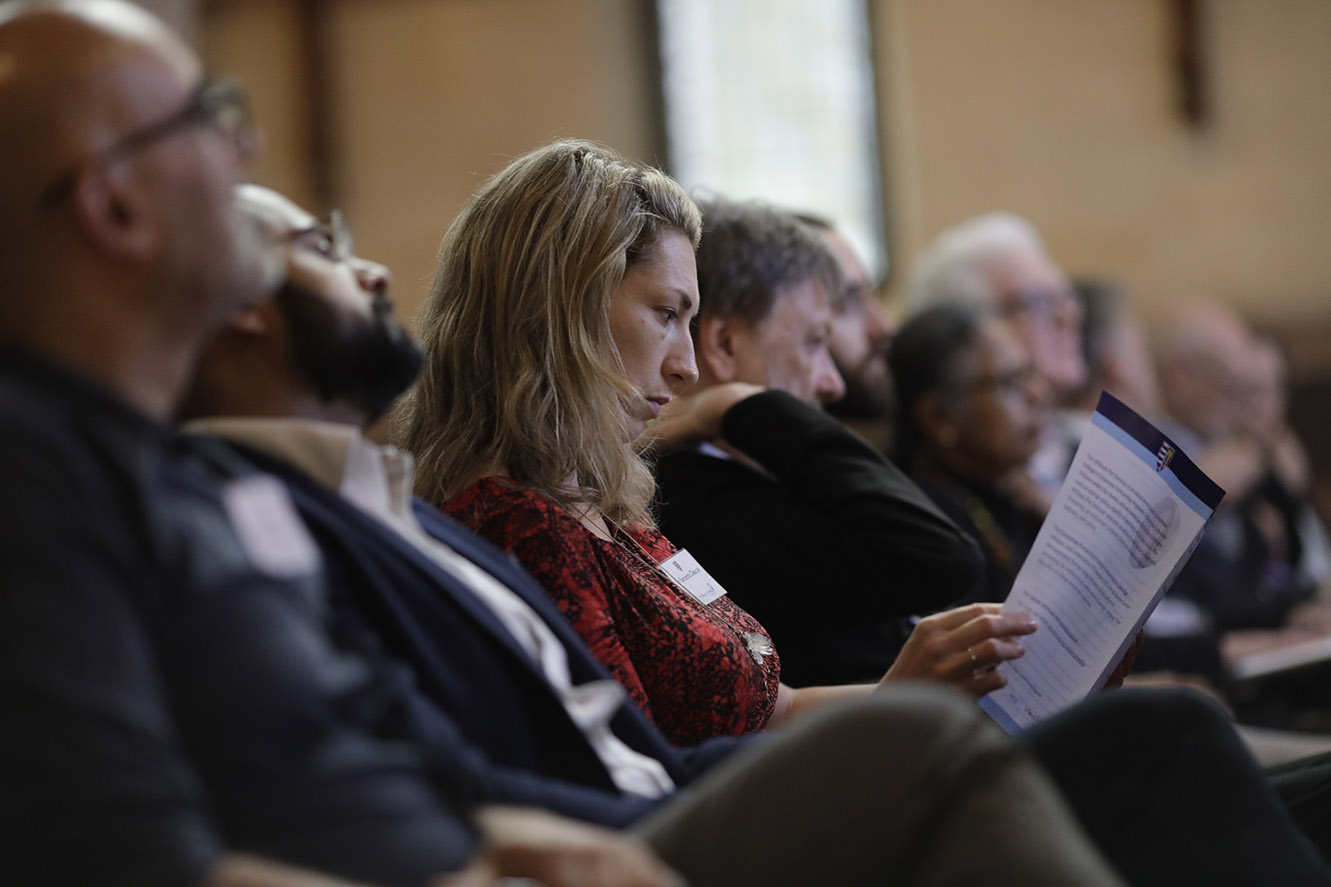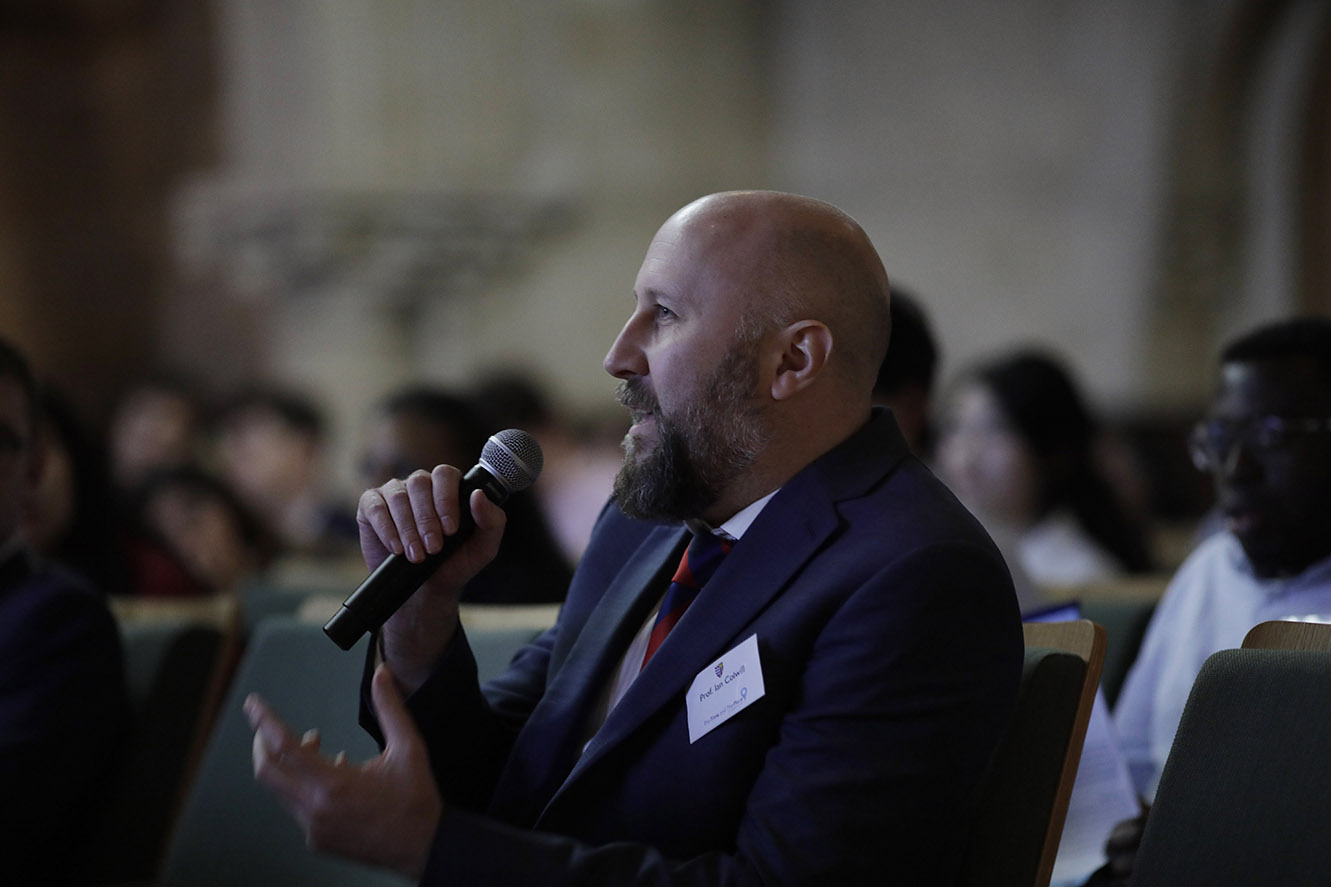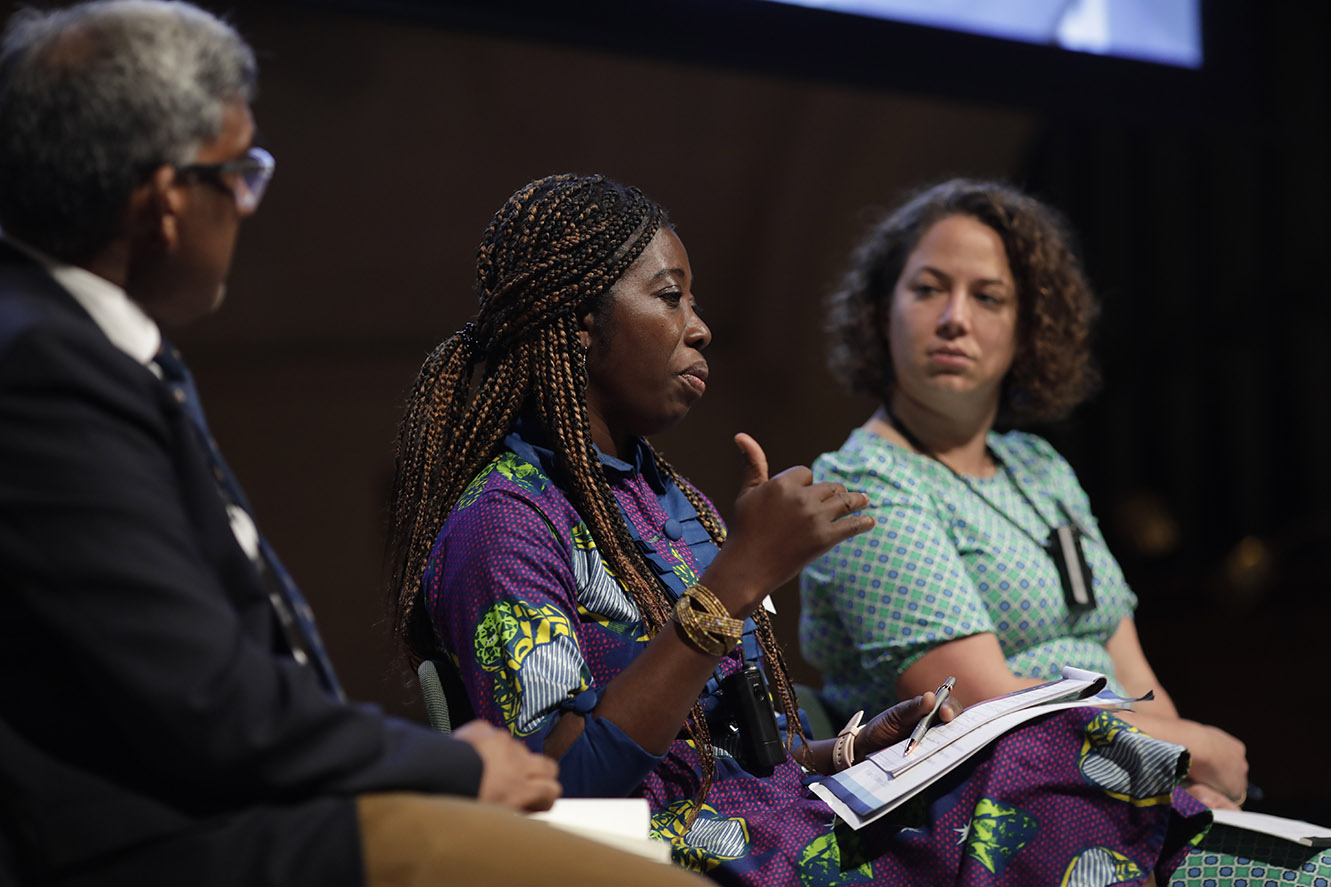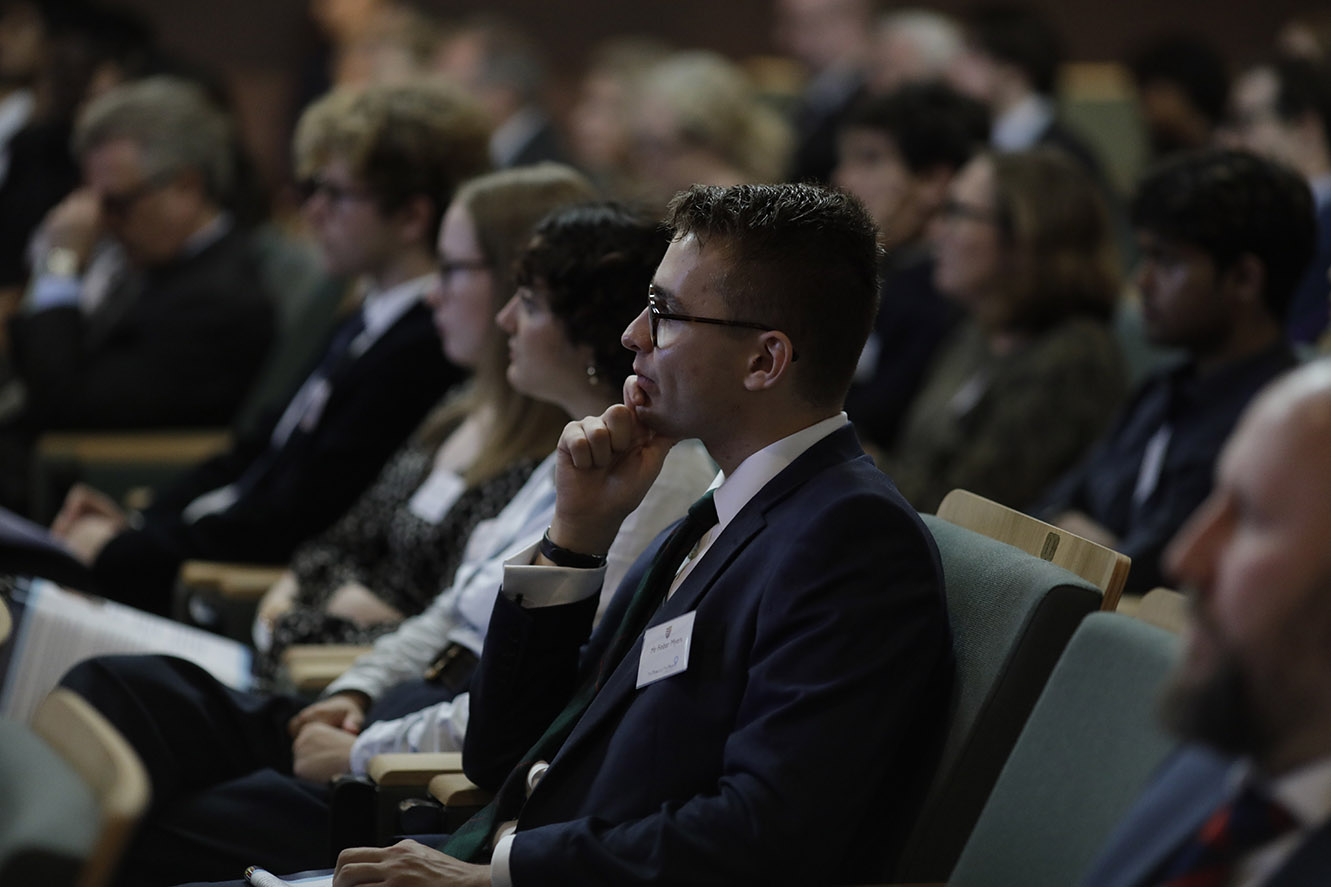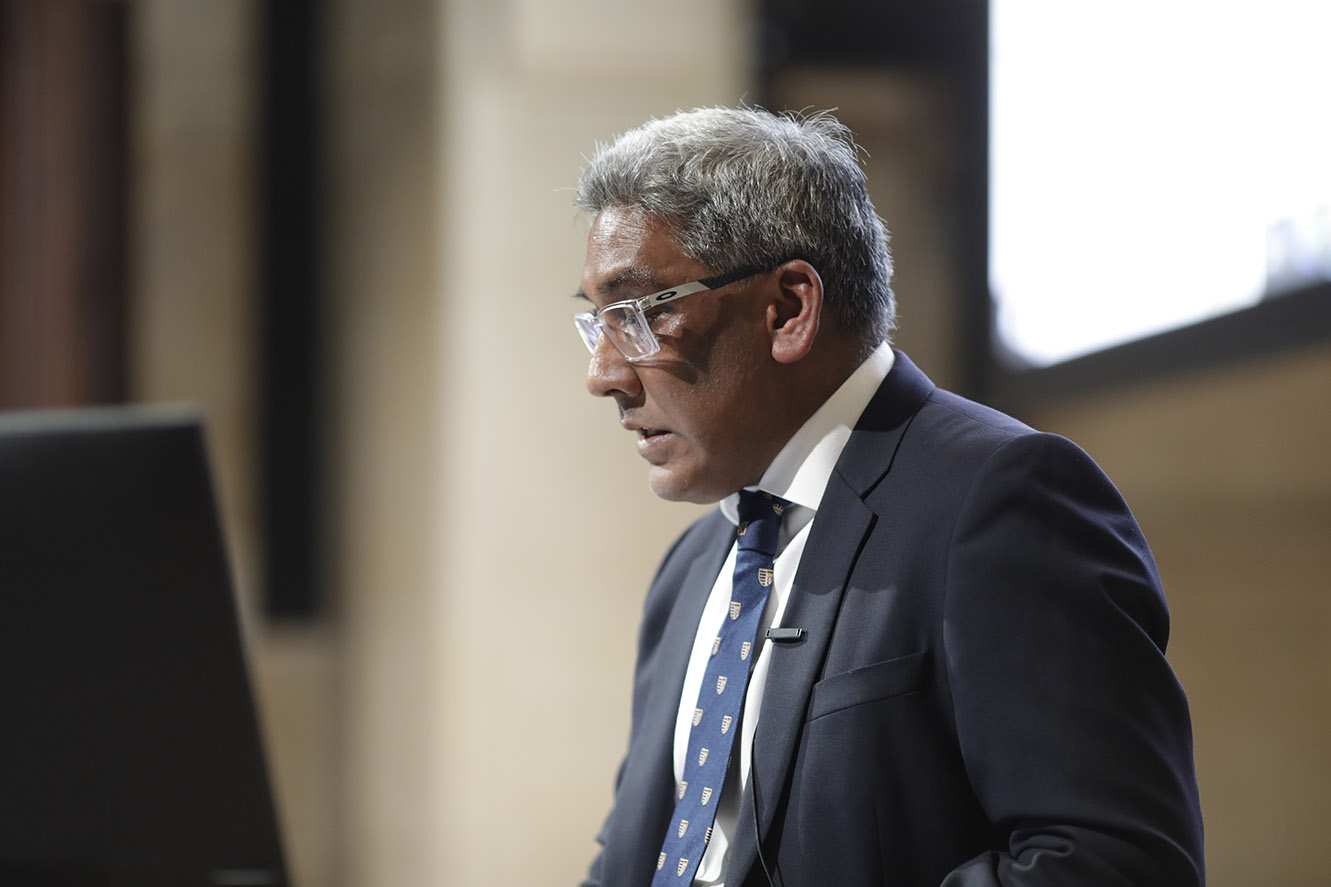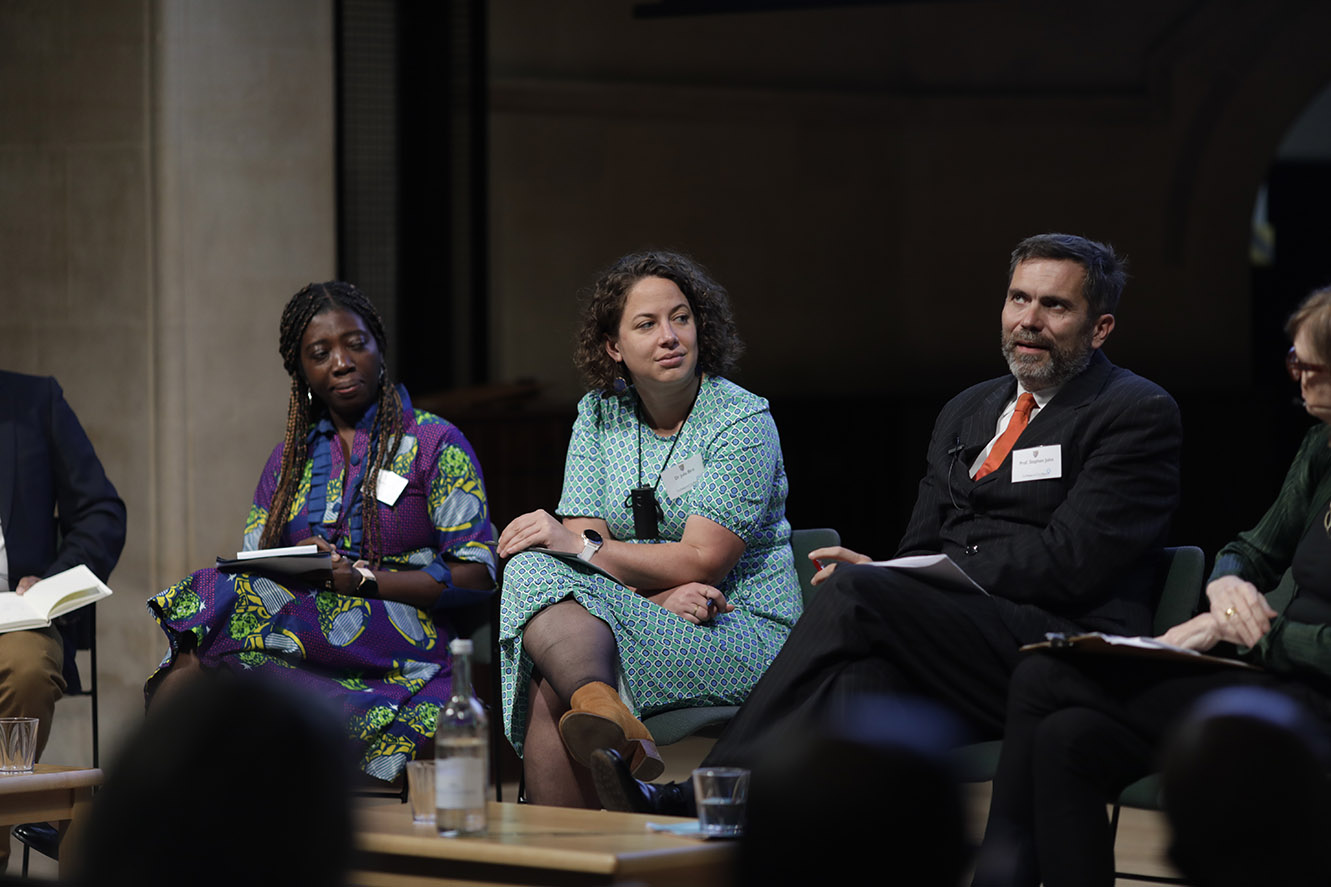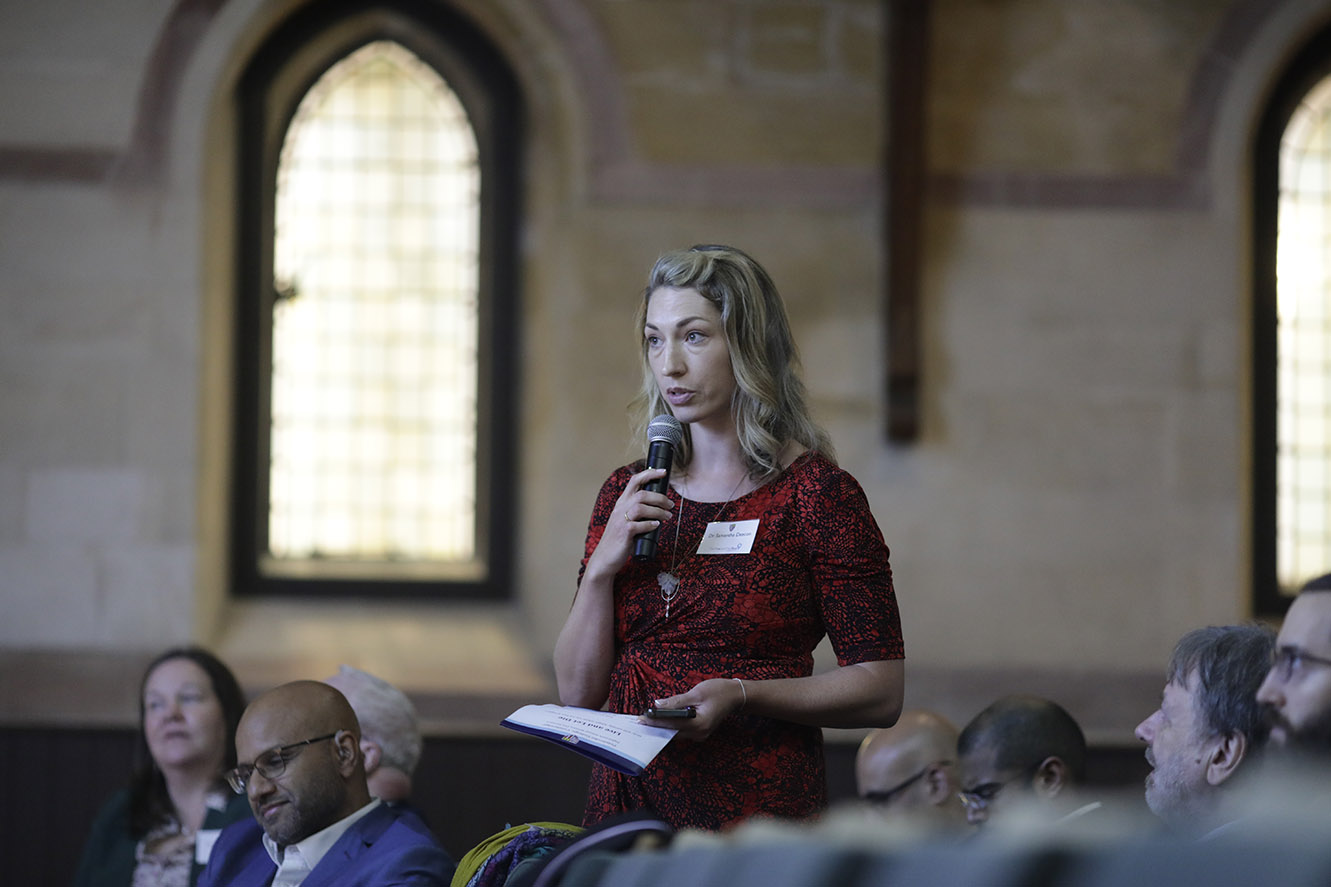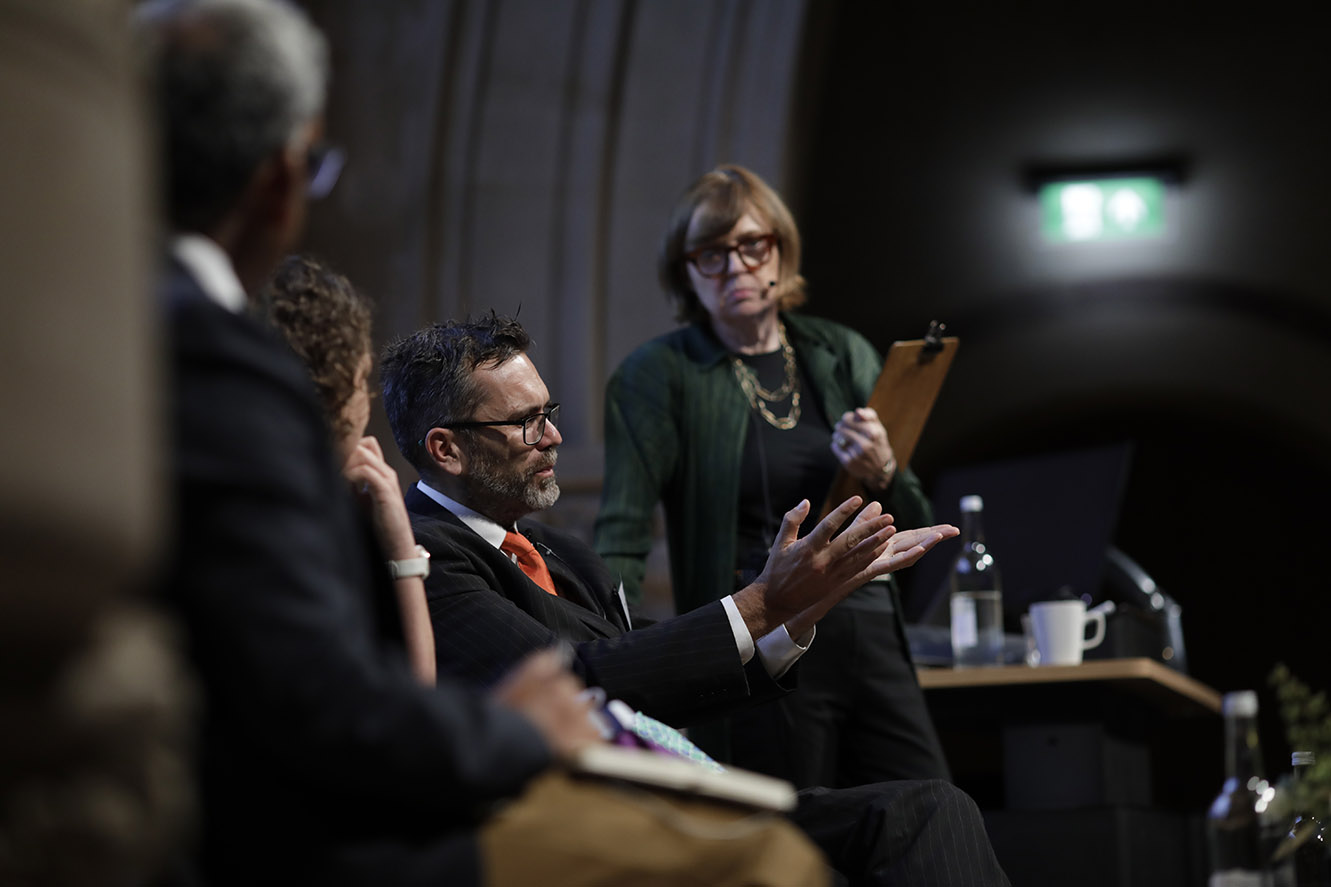The 18th William Pitt Seminar - Live and Let Die?
William Pitt Seminar 2023 - Live and Let Die: how will society adapt when we all live longer?
It could be said that we ended up with more questions than answers, but perhaps that is an apt reflection that living longer brings with it a great number of challenges from many quarters, and that again the William Pitt Seminar has identified an under-explored but vital topic.
Before the Seminar started, we had a fabulous opportunity for the attendees to view the specially extended inaugural exhibition in our new exhibition space, with an introduction by Professor Polly Blakesley. The exhibition included artworks from the Cambridge-based artists Xinyi Bi, Rebecca Ilett, and Idit Nathan and considered the site, spaces, history, and communities of Pembroke.
Our first Seminar in our wonderful new auditorium (and only the third to be hosted in Pembroke) the Master, Lord Chris Smith, introduced the 18th William Pitt Seminar: Live and Let Die – how will society adapt when we all live longer? We invited a range of speakers to tackle the question, including an economist, a philosopher, and two people who have dedicated their lives to changing lives for the better, both in the developed and developing worlds.
After a warm drink on a cool autumn day and a fresh home-made cookie in the foyer, we were ably steered through the discussion by our Chair, Pam Garside, as we explored the consequences of living longer. Pam has unparalleled experience in our NHS and knowledge of the latest health technologies that contribute to our improved quality and quantity of life, and was perfectly placed to ensure our speakers and audience left no stone unturned in a sometimes difficult and emotive subject. Pam noted that William Pitt the Younger, for whom the Seminar is named, died at 46 which was longer than the usual life expectancy in 1806, and that babies born today can expect to live longer than 80 – and that this throws up all sorts of problems that would be explored by our speakers.
All of our speakers this year have a strong connection to Pembroke, including two alumnae, a Fellow and a William Pitt Fellow – in fact the first William Pitt Fellow to have spoken at the William Pitt Seminar! Our first presentation was given by economics consultant Julia Bird (2005), she began with introducing the Japanese dystopian film Plan 75, where a government program encourages 75 year-olds to be euthanized to remedy an ageing society. The film ultimately becomes an exploration of how elderly people are valued. In a world of limited resources, we need to make decisions on how to use these and address a society that has fewer young and more older people. Julia put forward some solutions – none of which were easy, but all better than Plan 75.
William Pitt Fellow Dr Rav Seeruthun (2018) from healthequity.ai started with more data - by 2050 one in four people will be over the age of 65, but this varies across the country, and life expectancy can vary by 10 years in different parts of the UK. Rav gave the example of diabetes, which is more prevalent as people age but new technologies for treating diabetes such as continuous glucose monitoring can lead to digital exclusion. Technology can help find the signal from the noise, using data and AI to identify and address health inequities.
Dr Pauline Essah (1999) expanded the view to the wider world, looking at both demographics and the sustainable development goals (SDGs). Pauline showed that life expectancy and quality of life are different depending on where you live and these demographic shifts will have far-reaching effects on various aspects of society, including healthcare, workforce, economic productivity, social structures and infrastructure. The 17 SDGs are a blueprint for a happy and successful life, but they are not easy to address and not all will be achieved by 2030 as originally aimed. The SDGs are all interconnected, and Pauline noted that quality is as important as quantity of life, and that people want to feel valued and valuable, arguing that data and evidence can be used to make effective policy decisions.
Our final speaker was Pembroke Fellow, Stephen John, Hatton Professor of the Philosophy of Public Health. Stephen started by introducing the work of sociologist WG Runciman and how his thoughts on feminism evolved over time to better understand that women had different life experiences that gave them a different perspective – and that being old was possibly the same. The elderly have a different perspective, so we need to listen to their distinct experience and take note of their voice. Stephen noted that solidarity lies at the foundation of our healthcare system, but an ageing population challenges this. Living longer isn’t just more of the same, and Runciman’s insight needs to be taken seriously in developing social policy.
Pam then started with some questions from the floor in a change to our usual format and to reflect that Pembroke has strength and depth in this topic area – including our students, alumni and Fellows - and we were limited in the number we could host on the panel. Questions expanded on some of the positions put forward by the panel, challenged our speakers to respond to some of the more difficult aspects of ageing, and gave additional viewpoints.
After a short break with a refuel of cookies and caffeine the panel then took more questions from the floor. The Seminar drew to a close and we were additionally glad of the relocation to our new auditorium as we crossed the road in a torrential downpour before warming up and drying out in Parlours, where the discussion and debate continued over drinks and then dinner. Look out for the Corporate Partnership blog written by Julia Bird which further explores the themes and challenges thrown up by the 18th William Pitt Seminar.
You can view more pictures from the seminar in the gallery below.
